Spitting Seeds for Cash? Here's the Wildest Jobs of the Past!
10 Feb 2025Work comes in all shapes and sizes. Some people sit in offices, some save lives, and some... sniff armpits or watching the royal pot. Yes, throughout human history, there have been professions that seem, to put it mildly, bizarre today. But back in the day, they were in high demand and even essential! We have prepared for you the most shocking professions from both past centuries and the Middle Ages!
Pin Setter
Before automatic bowling machines were invented, special workers called "pin setters" manually set the pins back in place after each strike. Their job was simple: wait until the players knocked down the pins, quickly gather them, and place them back. It was a tough, noisy, and dangerous job—especially since a ball could hit you in the head if you got distracted.
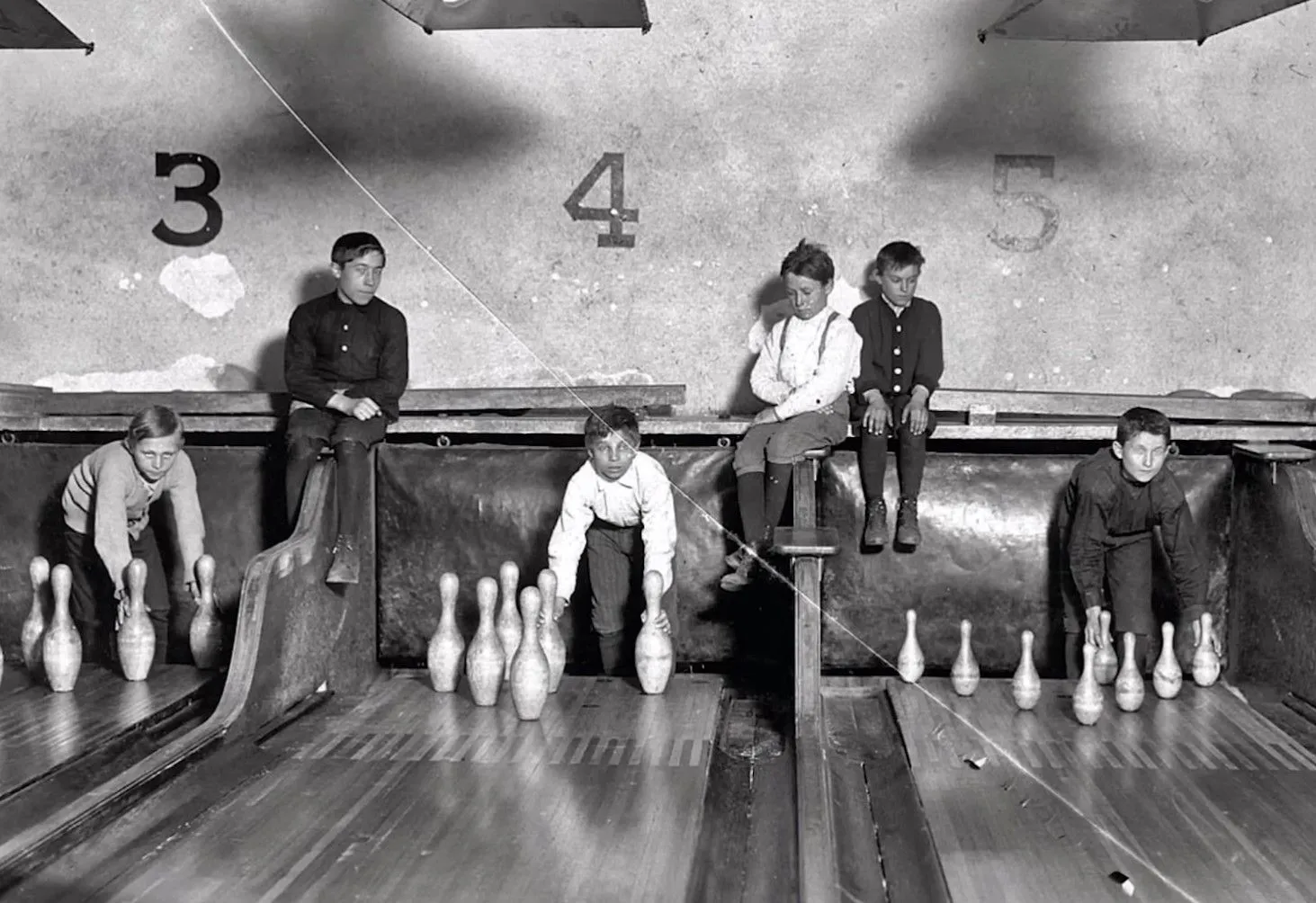 @10 Odd Jobs From The 20th Century… That No Longer Exist/American Rewind/YouTube.com
@10 Odd Jobs From The 20th Century… That No Longer Exist/American Rewind/YouTube.com
Usually, this was a side job taken up by teenagers for little money but eventually, technology replaced them (which is a relief, because those kids deserved better).
Elevator Operators
Today, we just press a button, the doors open, and we're in the cabin. But in the past, elevators had special workers who... simply pressed the buttons for passengers. Funny? Yes but at the time, it was considered a prestigious job, especially in hotels and business centers.
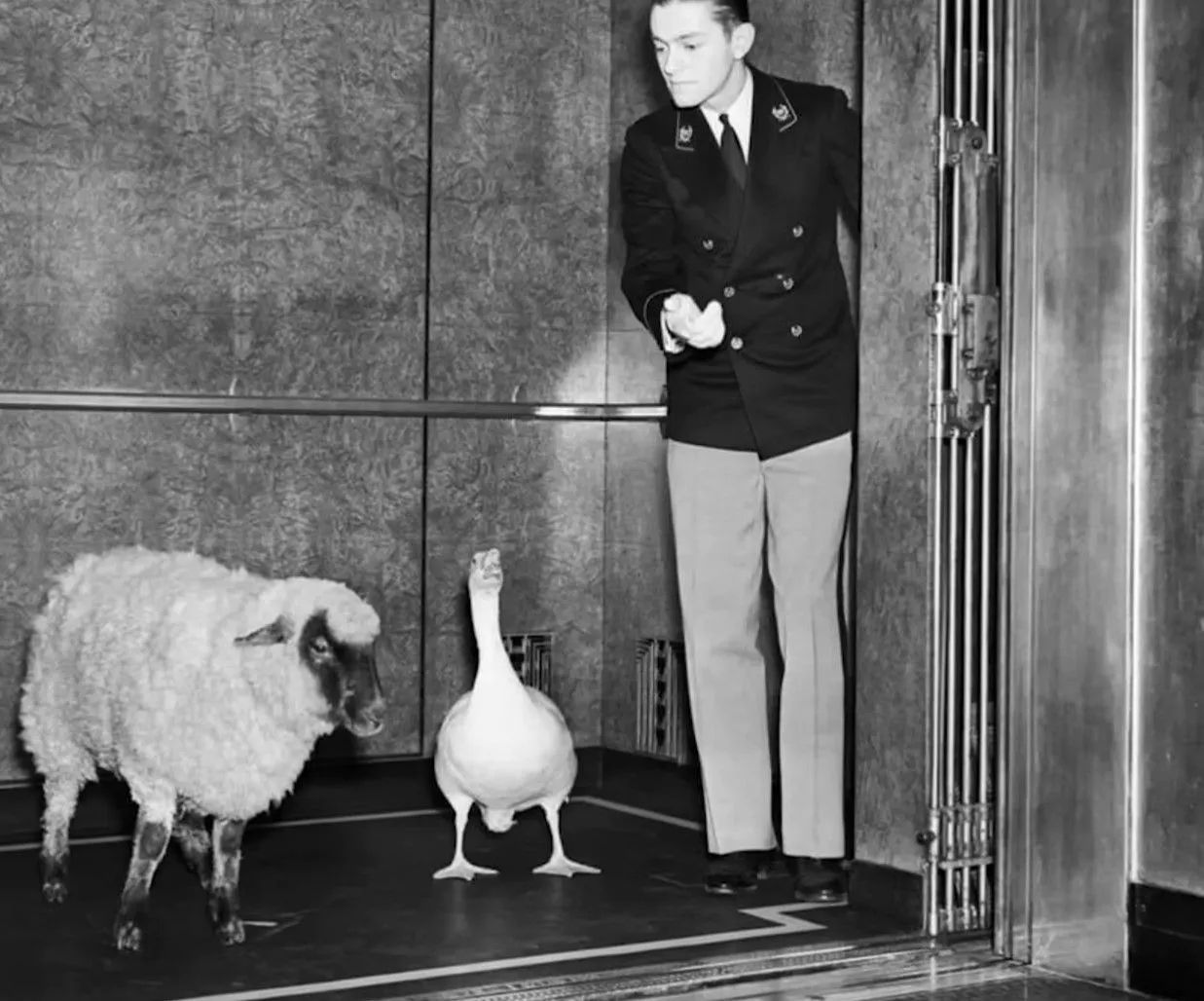 @10 Odd Jobs From The 20th Century… That No Longer Exist/American Rewind/YouTube.com
@10 Odd Jobs From The 20th Century… That No Longer Exist/American Rewind/YouTube.com
They not only pressed the buttons but also interacted politely with guests, helped with luggage, and even shared the latest news. When automatic elevators became the norm, this profession went the way of the dodo, as expected.
Cigarette Girl
In the 1920s to 1950s, you could find cigarette girls in nightclubs and casinos. They wore beautiful uniforms and carried trays with cigarettes, lighters, and candies.
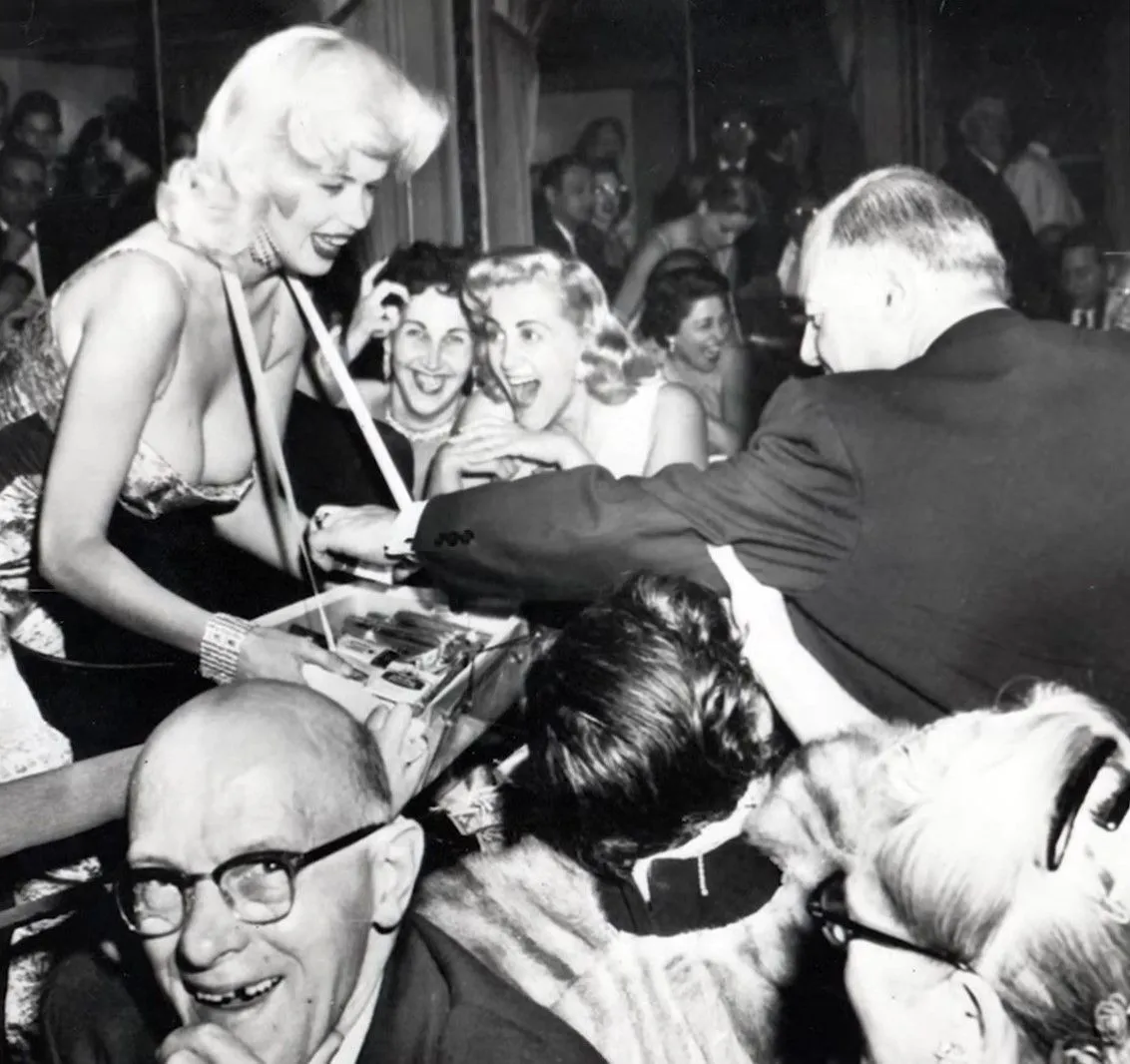 @10 Odd Jobs From The 20th Century… That No Longer Exist/American Rewind/YouTube.com
@10 Odd Jobs From The 20th Century… That No Longer Exist/American Rewind/YouTube.com
Their job wasn't just about selling but also about engaging in flirtatious conversations with customers. Of course, the main goal was to sell cigarettes, and these glamorous ladies helped hook people on unhealthy habits.
Gandy Dancer
Building railroads in the 19th century was physically demanding, although it might have looked amusing from the outside. "Gandy dancers" were workers who laid the rails... while dancing!
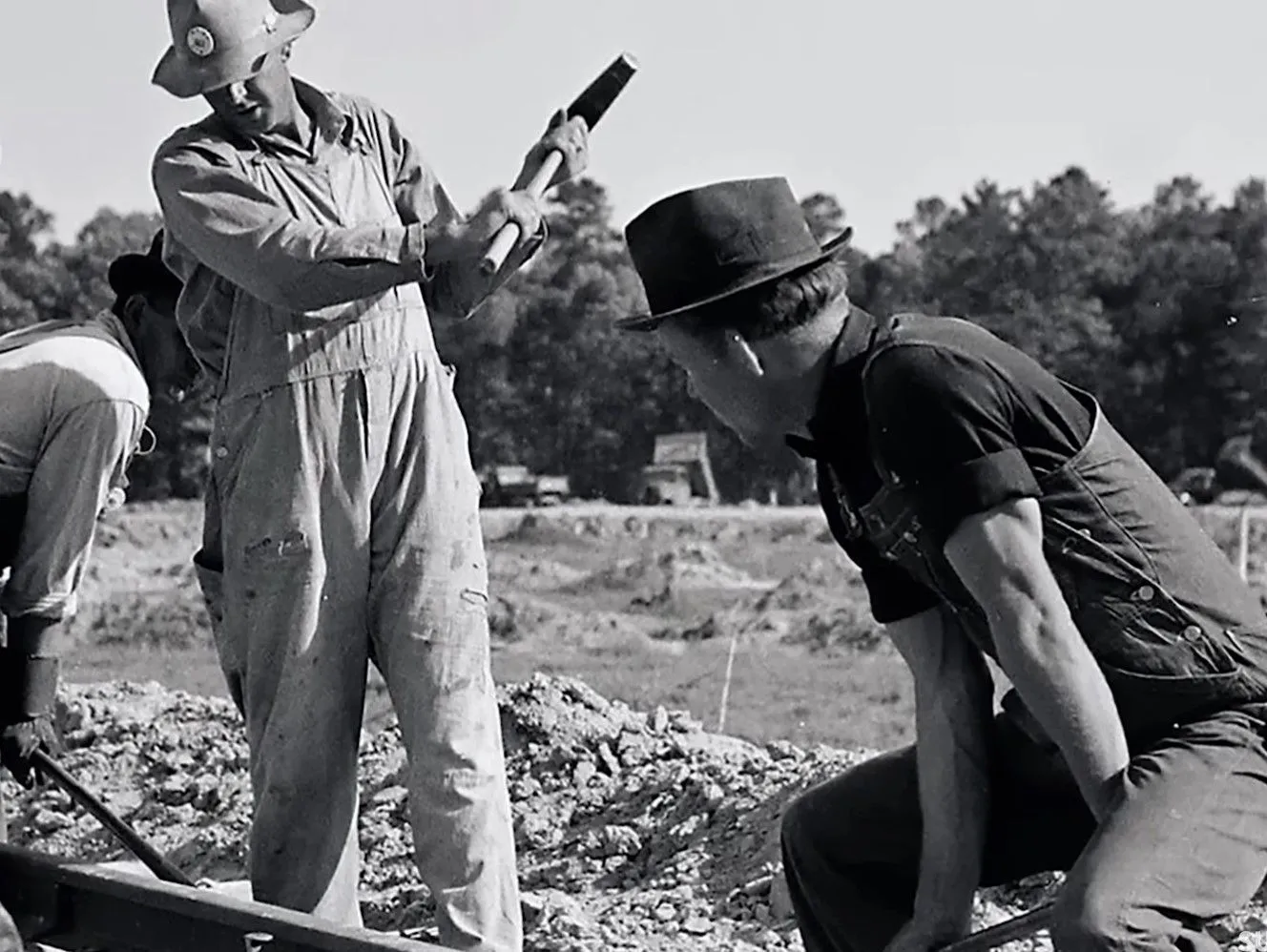 @10 Odd Jobs From The 20th Century… That No Longer Exist/American Rewind/YouTube.com
@10 Odd Jobs From The 20th Century… That No Longer Exist/American Rewind/YouTube.com
They earned their name due to their unique method of working: to synchronize the movement of the ties and rails, they worked in rhythm—literally "dancing" with sledgehammers. They used special chants to coordinate their strikes.
Log Driver
In simple terms, this was someone who managed logs on a river. Sounds unusual, right? But why would they need to manage logs? Let me explain. In the past, timber was floated down rivers, and someone had to control the logs, making sure they didn't pile up in one spot.
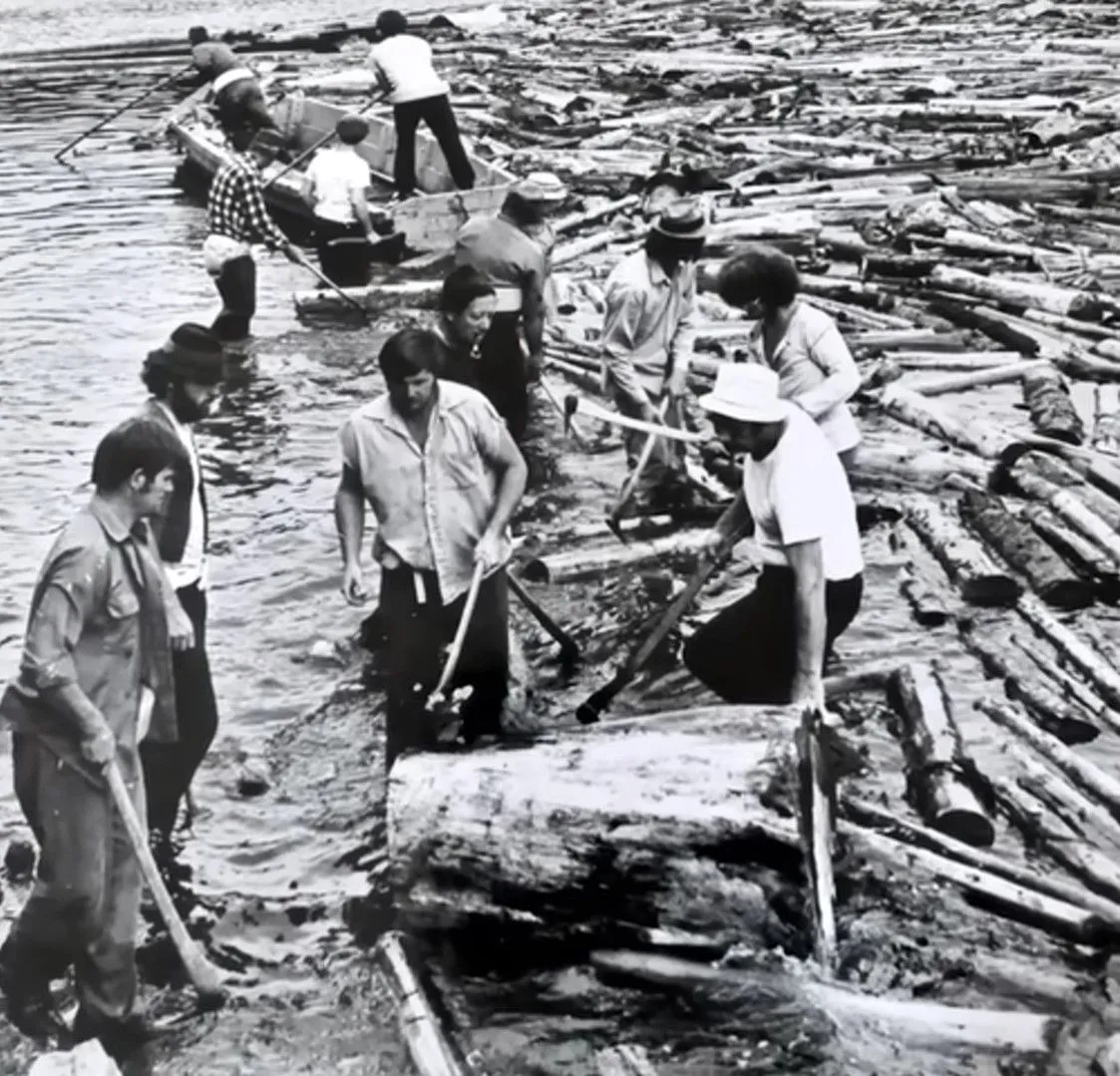 @10 Odd Jobs From The 20th Century… That No Longer Exist/American Rewind/YouTube.com
@10 Odd Jobs From The 20th Century… That No Longer Exist/American Rewind/YouTube.com
"Log drivers" jumped from log to log, guiding them in the right direction. This was an extremely dangerous job: one wrong move, and you’d be underwater, trapped by hundreds of heavy logs. Despite the risks, these guys were known for their agility and even held competitions for "dancing" on the logs!
Armpit Sniffers
Yes, we’re not joking! Before modern laboratories and soulless chemical analyzers, the effectiveness of deodorants was tested... on people. The unfortunate individuals spent all day sniffing the armpits of volunteers (or not-so-volunteers) to determine how well the product dealt with sweat.
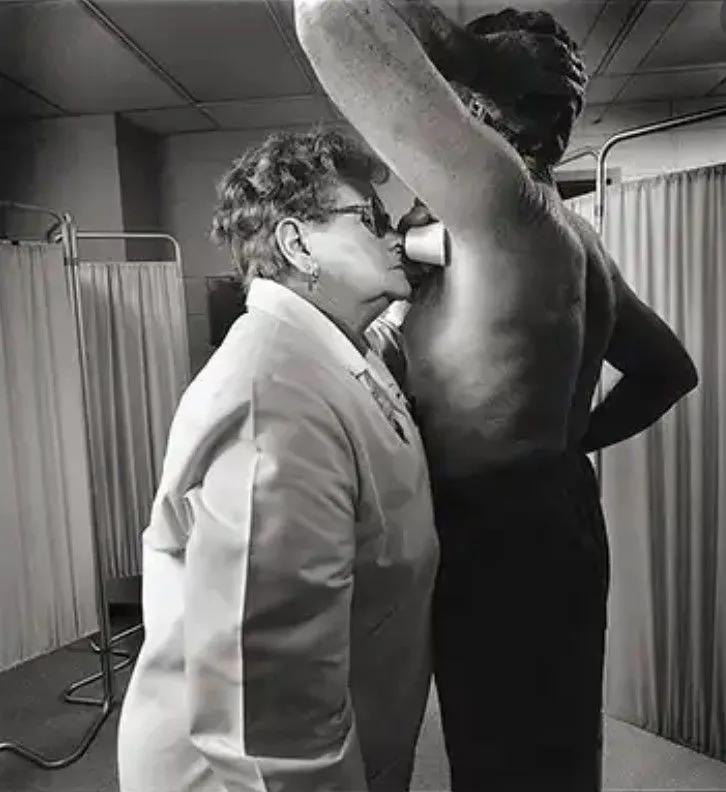 @Nancy Rica Schiff/Caters News Agency
@Nancy Rica Schiff/Caters News Agency
Imagine this: your shift begins, you’re handed a notebook, and you go sniffing other people's "scents"... pretty creepy, right? Fortunately, this profession mostly stayed in the 2000s, and it's rare to come across such a "sniffer" nowadays.
Human Alarm Clock
Before alarm clocks were invented, people had to find a way to wake up for work. How? Well, special workers called "knocker-uppers" would walk around in the morning with long sticks, tapping on windows until the client woke up.
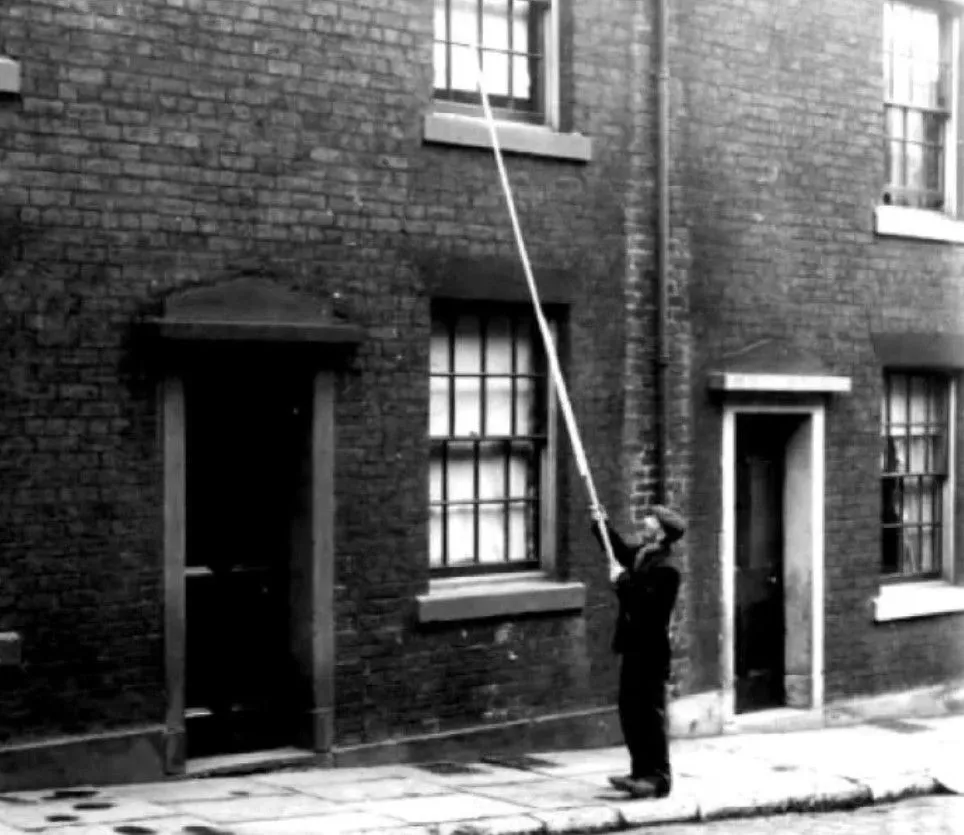 @TookLongWayHome/reddit.com
@TookLongWayHome/reddit.com
Some even used tubes to shoot peas at the windows of people who liked to sleep in. The funny part is, they could wake people up but who woke up the alarm clocks themselves—now, that’s a mystery!
Leech Collectors Using Their... Bodies
In the 19th century, medicine was... peculiar. Bloodletting was considered a great way to treat ailments, and leeches were the main medical tool. But where did you get leeches? Right, from the swamps!
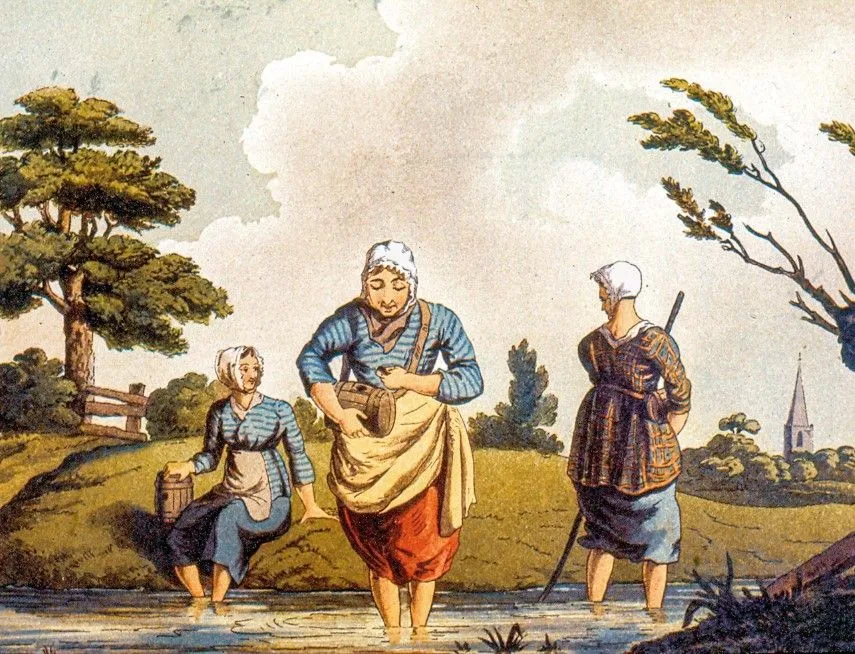 @Universal History Archive/UIG/Bridgeman
@Universal History Archive/UIG/Bridgeman
Leech collectors would wade into the water up to their knees and wait for the "medicinal" creatures to attach themselves to them. They would then peel them off and sell them to doctors. Could this job have been pleasant? Highly doubtful...
Professional Mourners
In the past, it was customary to wail loudly and mourn the deceased at funerals. But what if the deceased didn’t have many friends, and the family couldn’t produce tears on cue? That’s where professional mourners came in.
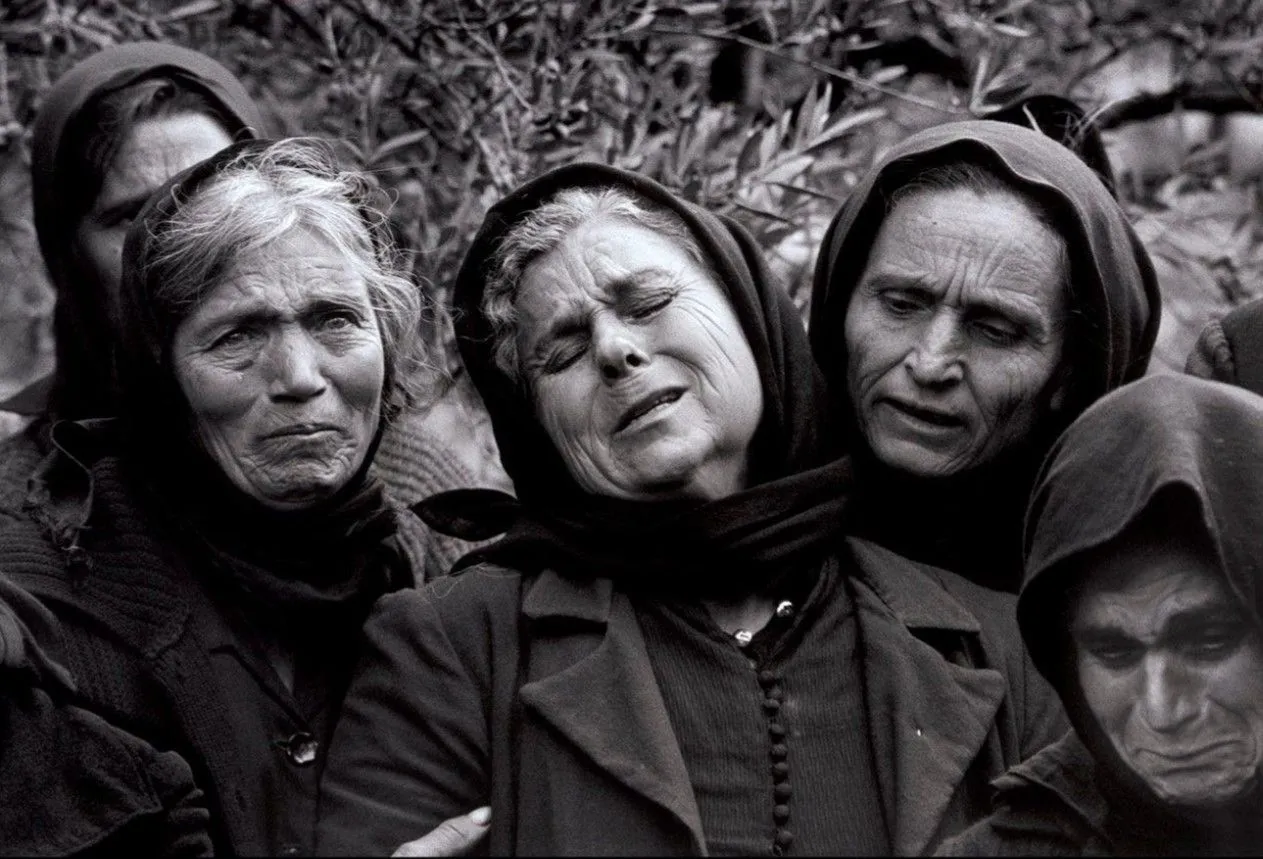 @Emanuele810/reddit.com
@Emanuele810/reddit.com
These women would attend funerals, burst into tears, wail phrases like "He was such a wonderful person!" and create the atmosphere of genuine sorrow.
Human Torches
Before street lamps with light bulbs, street lighting was handled by special people who carried lit torches or walked with lanterns to illuminate the path for passersby.
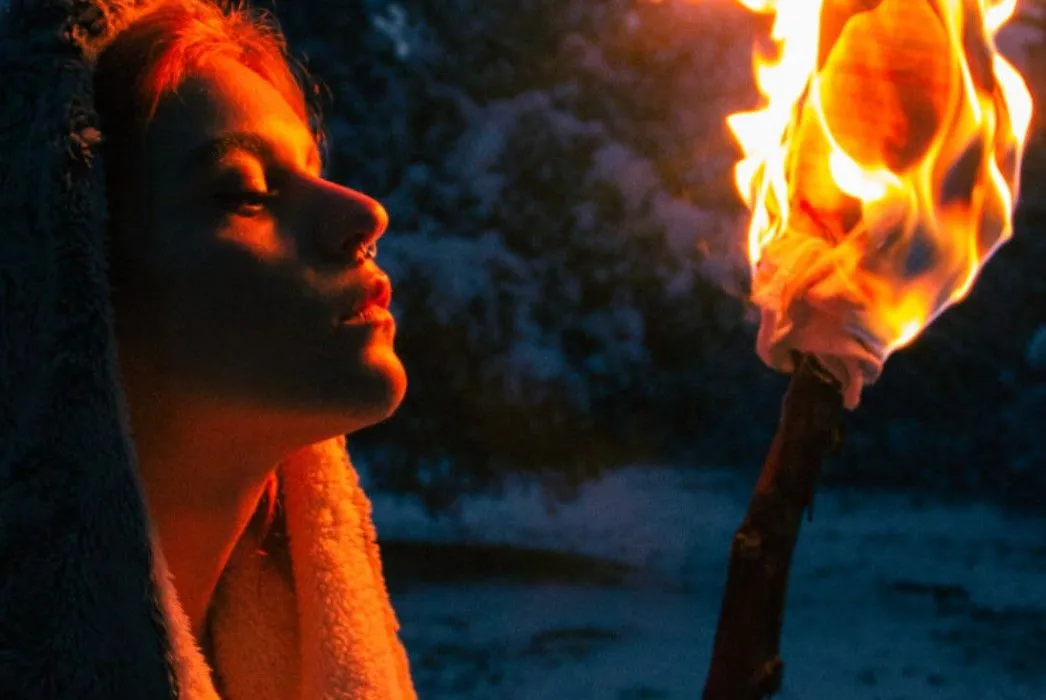 @windowo.co.uk
@windowo.co.uk
In Ancient Rome, for example, wealthy citizens would hire slaves to simply walk beside them and light the way. No buttons, no lampposts—just a living person literally "on fire" with work.
Ice Cutters
Before refrigerators, keeping food cold was a real challenge. The only solution was natural ice. Special workers would go out on frozen lakes and rivers during the winter, cut huge blocks of ice, and store them for use later.
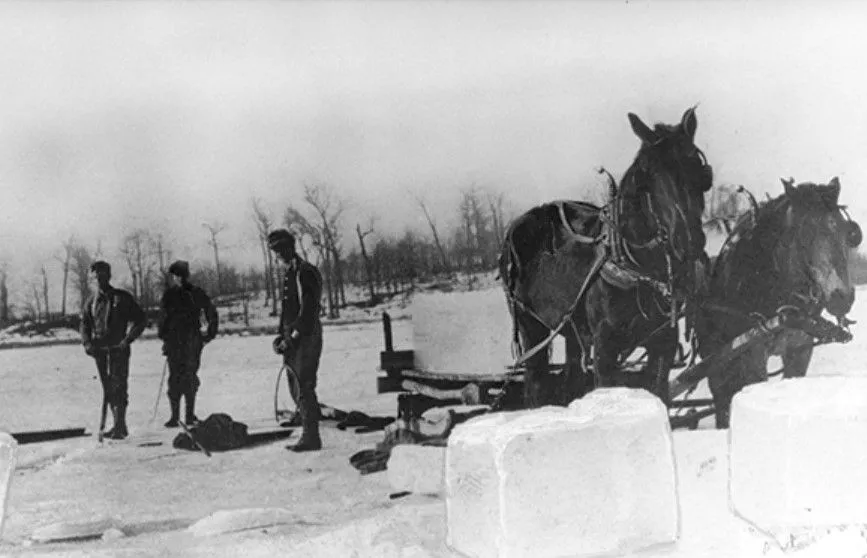 @Deanna Bunkelman/lakeminnetonkamag.com
@Deanna Bunkelman/lakeminnetonkamag.com
It sounds simple, right? But imagine working on ice in subzero temperatures, where one wrong step could land you in freezing water. Thank goodness for the invention of the refrigerator!
Royal Taster
Being a cook for the king was a great honor but being his taster… that’s a questionable job. These people were the first to try the king's food to ensure it wasn’t poisoned.
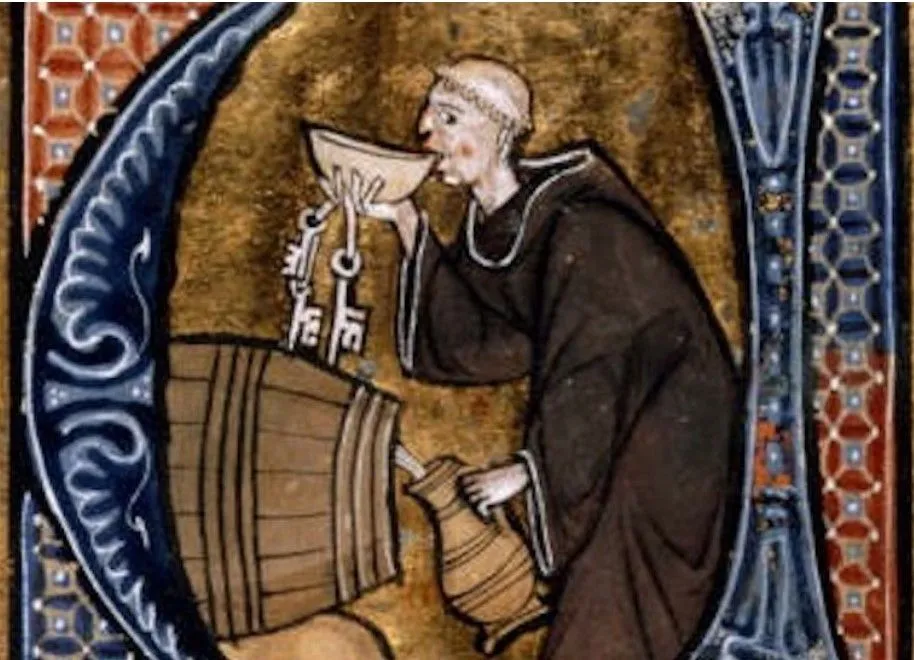 @thelivelifecouk.wordpress.com
@thelivelifecouk.wordpress.com
If, after some time, the taster didn’t drop dead, the dish was considered safe to serve. It might have been a privileged position but it was stressful, especially during times when poisoning was a popular tactic among conspirators.
Fly Catcher
In wealthy homes of the past, where there were no window screens or insect repellents, flies were dealt with in the most unusual way—by hiring people who caught them by hand.
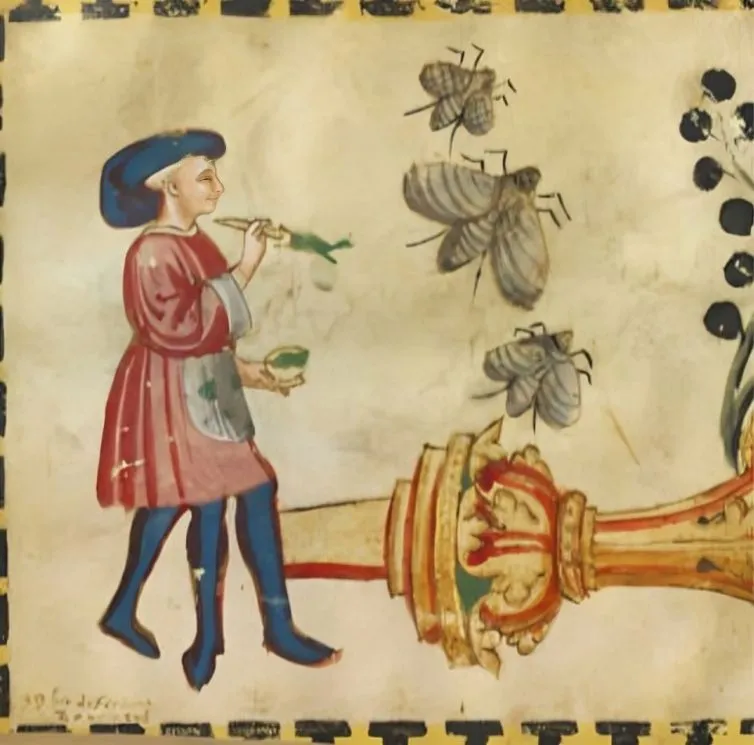 @knife.media
@knife.media
The fly catcher's job was to make sure no flies disturbed the mood of the hosts. Sometimes, traps were used but particularly skilled "hunters" could swat the insects right out of the air.
Herb Thrower
In the 17th century, in English royal castles, the atmosphere was especially important—not just royal feasts and gatherings but also the scents that filled the air. To mask unpleasant odors, castles employed "herb throwers"—people who would scatter freshly chopped herbs and plants inside and outside the building.
 @designer.microsoft.com
@designer.microsoft.com
These herbs not only had pleasant scents but also helped hide any odors that arose from human activity or food. Herb throwers worked particularly hard during coronations, scattering herbs in front of the procession.
Grave Robbers
In the 19th century, a grim yet highly demanded profession existed in Britain—grave robbers. Medical schools desperately needed cadavers for student training, so some enterprising individuals started digging up fresh graves and selling bodies to anatomy theaters.
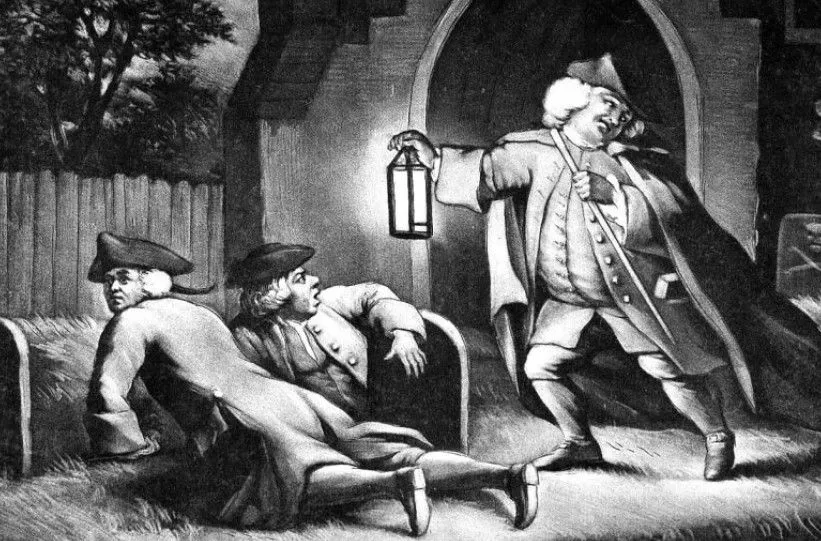 @Wellcome Library, London
@Wellcome Library, London
The job was not only illegal but also dangerous—one could easily face the wrath of grieving relatives or get caught by the authorities. However, the demand was high, and many risked it all for quick cash. Pretty wild, right?
Groom of the Stool
In European royal courts, there was a rather peculiar position—the Groom of the Stool. This courtier assisted the monarch during... bathroom visits, providing necessary items and ensuring the "royal throne" was in perfect condition.
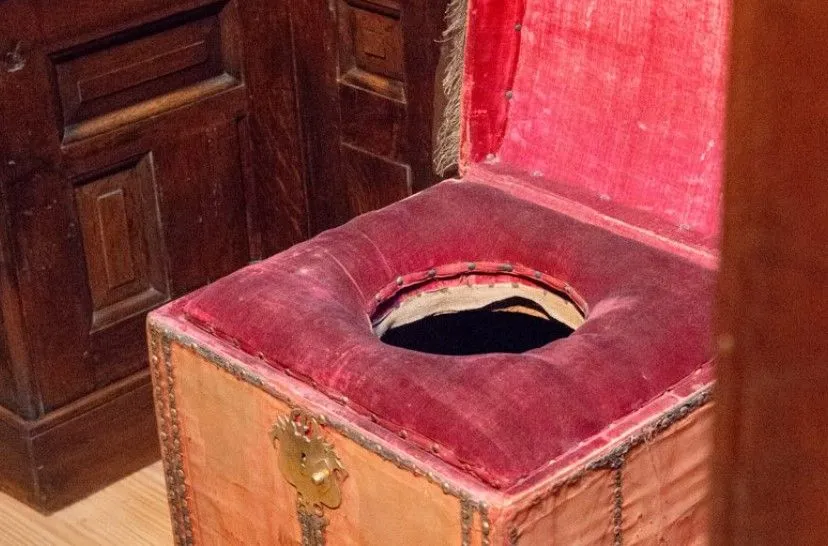 @Peter K. Burian/Wikimedia Commons
@Peter K. Burian/Wikimedia Commons
While it sounds hilarious today, back then, this role was considered prestigious and deeply trusted, as the Groom of the Stool had access to the king during his most private moments.
Funeral Clown
Sounds weird, right? But in Ancient Rome, there was an actual tradition of hiring special performers—funeral clowns.
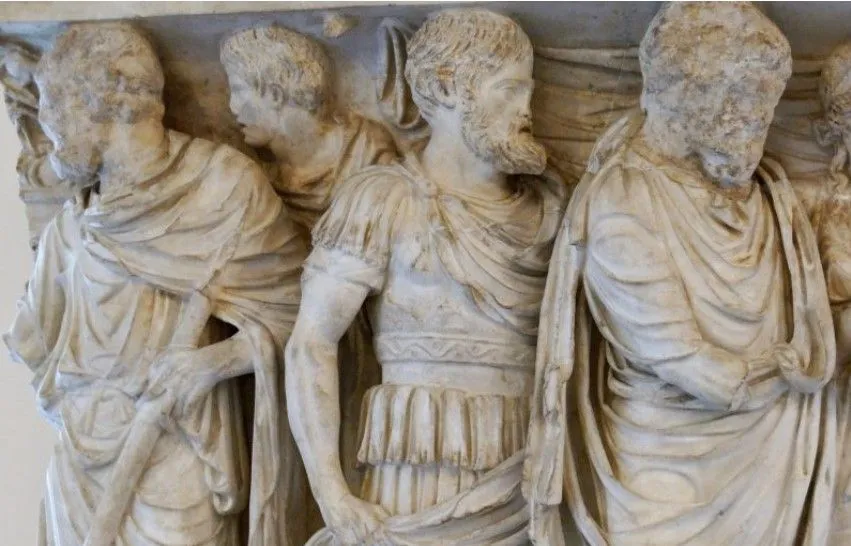 @Marie-Lan Nguyen/Wikimedia Commons
@Marie-Lan Nguyen/Wikimedia Commons
Their job was to entertain mourners by imitating the deceased, mimicking their habits and mannerisms. It was believed that this helped honor the dead and ease the grief of their loved ones through laughter.
Whipping Boy
In 15th–16th century English royal families, an unusual practice existed: princes were raised alongside so-called "whipping boys." Since physically punishing a future king was unthinkable, another boy was whipped in his place whenever he misbehaved.
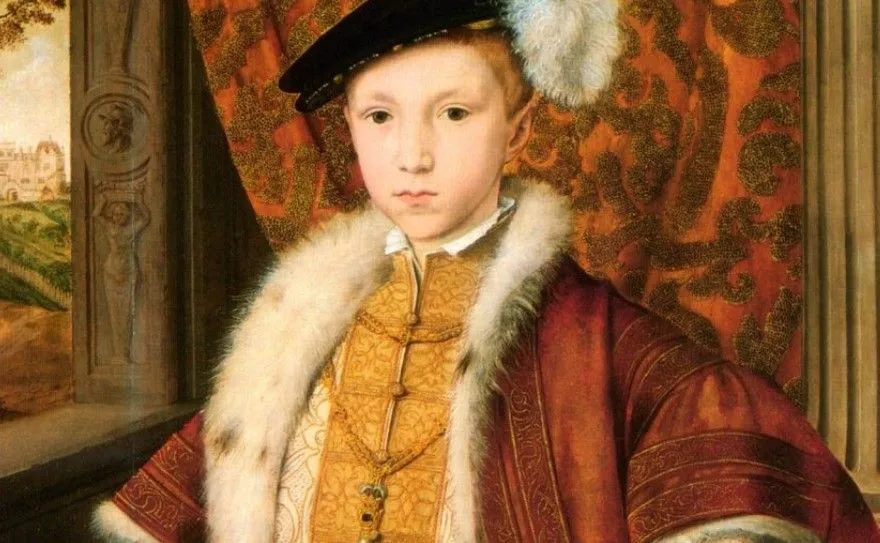 @Wikimedia Commons
@Wikimedia Commons
The idea was that the prince, feeling sympathy for his companion, would behave better to avoid causing him pain. Sounds absolutely brutal, to be honest.
Factory Reader
Today, factory workers listen to music, podcasts, or audiobooks while working. But back in the day, there was no Spotify, so workers were entertained by… live readers!
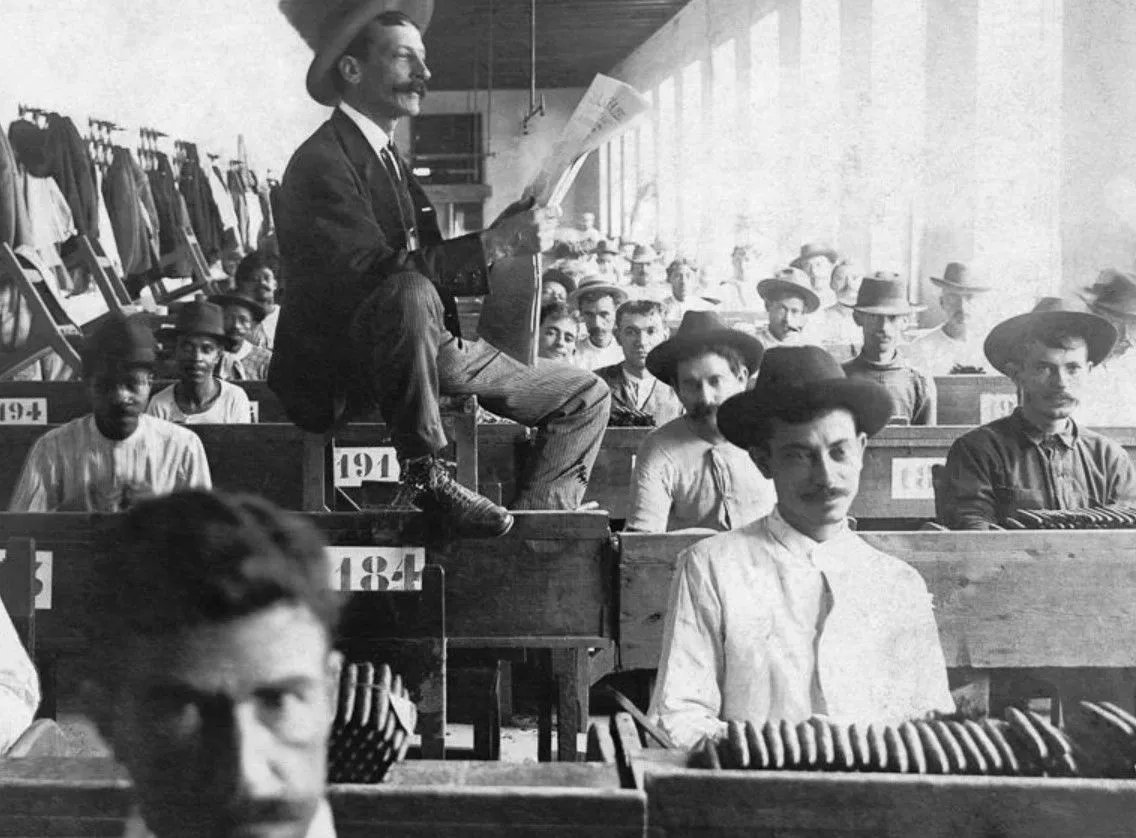 @mashable.com
@mashable.com
These guys would read newspapers, novels, or news updates out loud to keep workers from going insane due to monotonous tasks. Just imagine—you’re standing there, tightening bolts or hammering nails, while someone reads Dickens or the latest political news to you. Sounds cool, right? But then radio and cassette tapes arrived, and the profession vanished.
Gong Farmer
If you think you have a tough job, just know that in 16th-century England, there were Gong Farmers—people whose job was to clean public toilets.
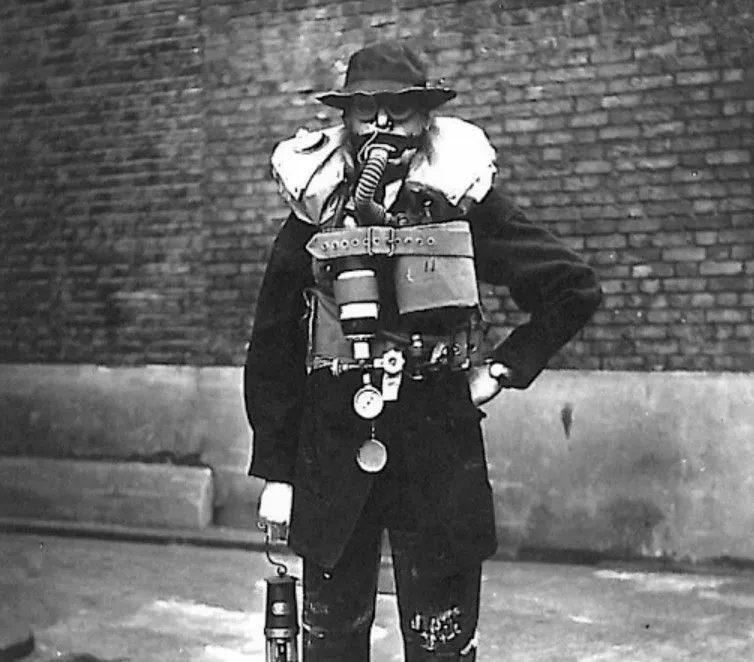 @drivepedia.com
@drivepedia.com
And they could only do it at night because carrying buckets of… well, you get the idea… around the city during the day was strictly forbidden. The pay was decent but there was a catch—no one wanted to see them or even talk to them.
Human Calculators
Before computers and even simple calculators, complex calculations were done by… people! In the 19th and 20th centuries, there was an official profession called "human calculator."
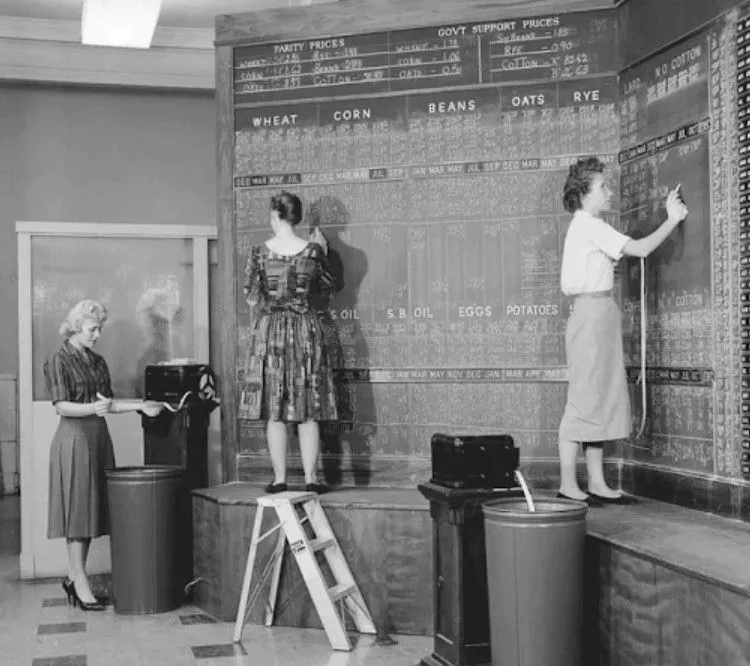 @drivepedia.com
@drivepedia.com
These were mathematicians who spent their days manually calculating flight trajectories, financial forecasts, or scientific data. Many of them worked for NASA—Katherine Johnson, for example, helped calculate the flight paths for the first astronauts!
Phrenologist
Imagine this: you visit a "doctor," and he starts feeling your head and says, "Oh! You’ve got a bump above your right ear, which means you’re a born leader!" That’s phrenology—a pseudoscience popular in the 19th century that claimed the shape of your skull could determine your character and abilities.
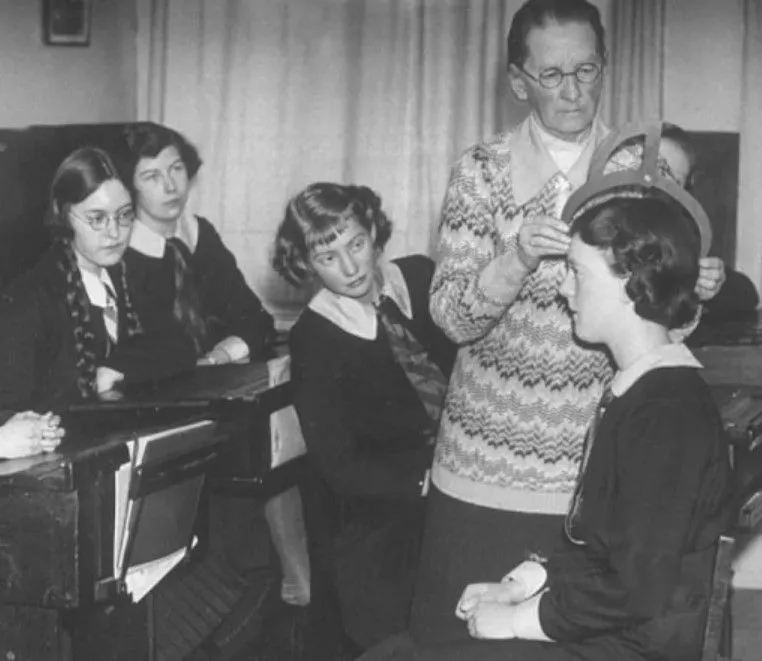 @drivepedia.com
@drivepedia.com
Phrenologists would "diagnose" intelligence, personality, and even criminal tendencies just by touching a person’s head. Later, people realized it was total nonsense, and… well, the profession disappeared for obvious reasons.
Dispatch Rider
Before telephones and the internet, important messages had to be delivered by couriers. One of the coolest versions of these messengers existed in 19th-century London—dispatch riders.
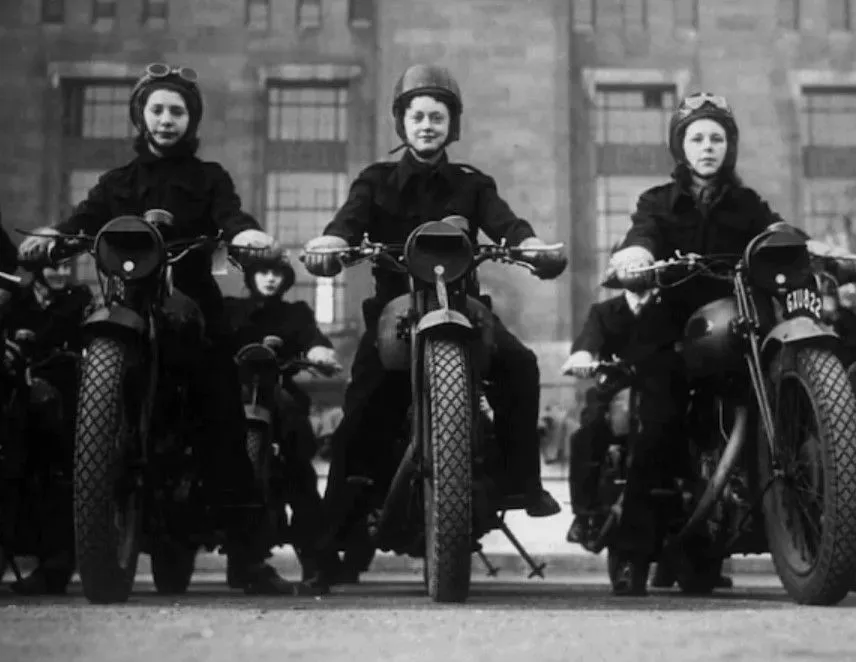 @drivepedia.com
@drivepedia.com
They would race through the city on horseback (and later on motorcycles), delivering urgent government documents. During wartime, this job was incredibly dangerous—riders could be intercepted by enemies or caught in crossfire on the battlefield.
Toad Doctor
Now, this one is pure absurdity! In the 18th and 19th centuries, some people believed that frogs could cure diseases. Enter the "toad doctors"—bizarre healers who told patients to carry live frogs in their pockets or even press them against their skin to "draw out" illness.
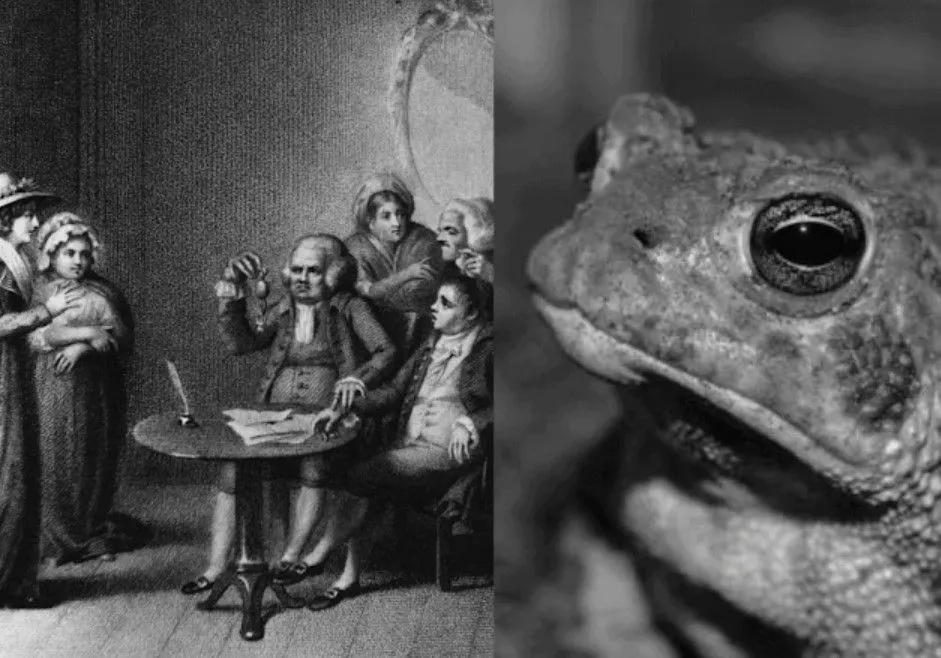 @drivepedia.com
@drivepedia.com
This was especially popular as a supposed cure for scrofula (a form of tuberculosis affecting the lymph nodes). Did it work? Well… no but people still believed in it.
Aircraft Listener
Imagine standing in the middle of a field with a giant metal tube, looking like enormous ears, and your job is to hear enemy planes before they are spotted by eyes.
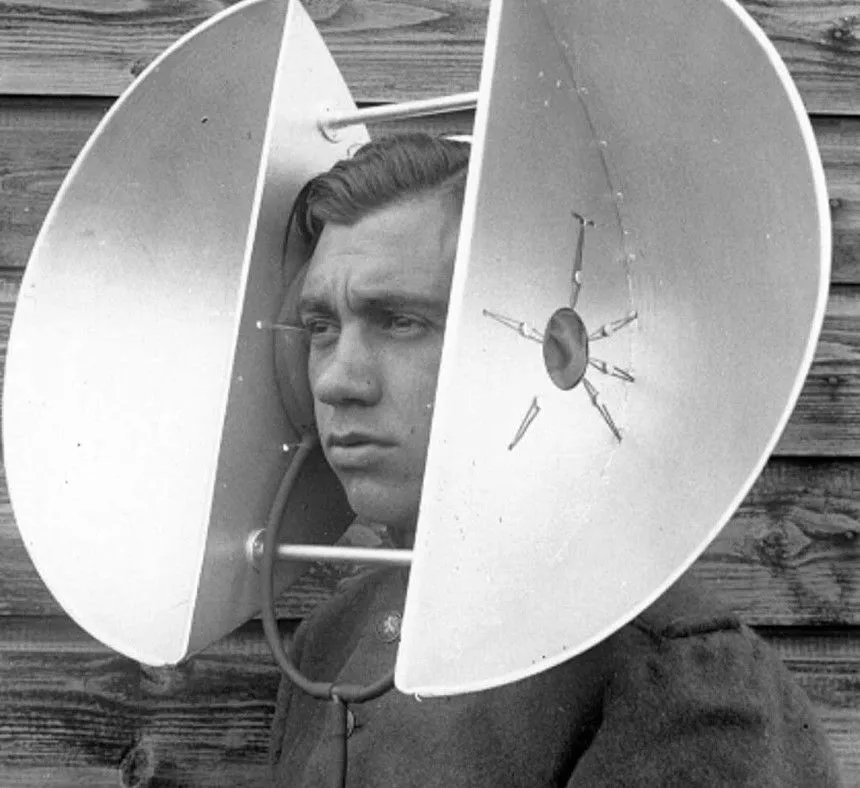 @rarehistoricalphotos.com
@rarehistoricalphotos.com
Before radar was invented in the early 20th century, armies used special people who, with the help of acoustic devices, caught the sound of approaching bombers. They would wear headphones, direct large "sound horns" into the sky, and try to determine which direction the threat was coming from.
Barber-Surgeon
In medieval times, barbers didn’t just cut hair—they also performed surgery! You could walk in for a haircut and end up having a boil lanced or a tooth pulled.
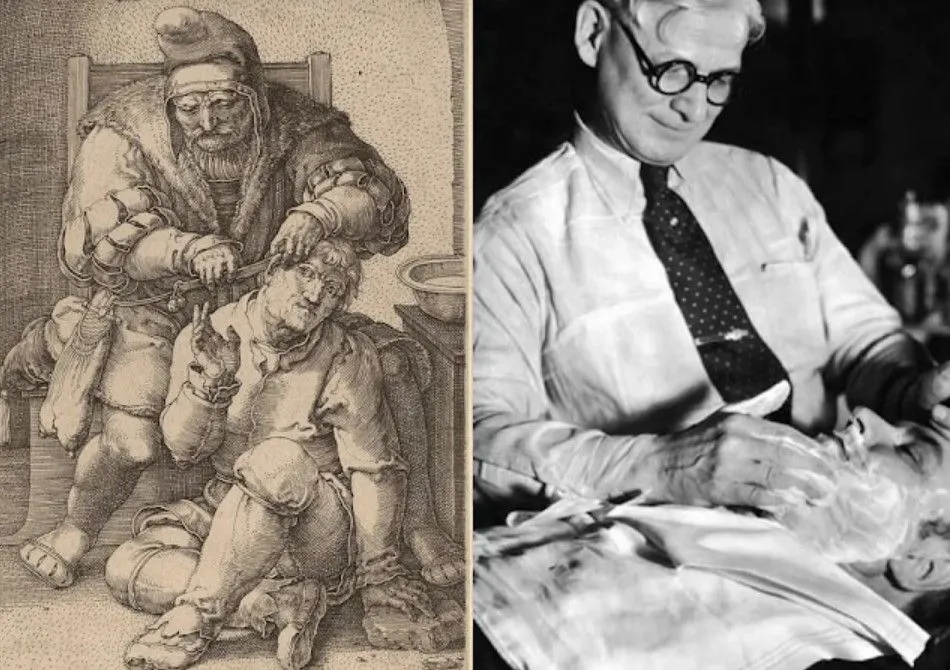 @drivepedia.com
@drivepedia.com
Why? Because "real" doctors considered manual labor beneath them, so barbers stepped in to do both jobs. Get a beard trim and an operation in one visit! It’s terrifying to think how many people probably didn’t survive this kind of "medical treatment."
Sandal Bearer
In ancient Egypt and Japan, high-ranking individuals didn’t bother with their own footwear. Why bend down to take off your sandals when there was a special person for that? The sandal bearer carried their master's shoes, assisted with foot washing, and handed over footwear when needed.
 @designer.microsoft.com
@designer.microsoft.com
Sounds like an unglamorous job, right? But in reality, it was the opposite. This person was always close to the highest ranks of society, meaning they had direct access to the country’s elite.
Sin-Eater
The name sounds creepy but this was actually one of the strangest (and possibly laziest) jobs in history. When someone died, people believed their soul could get stuck between worlds due to unconfessed sins.
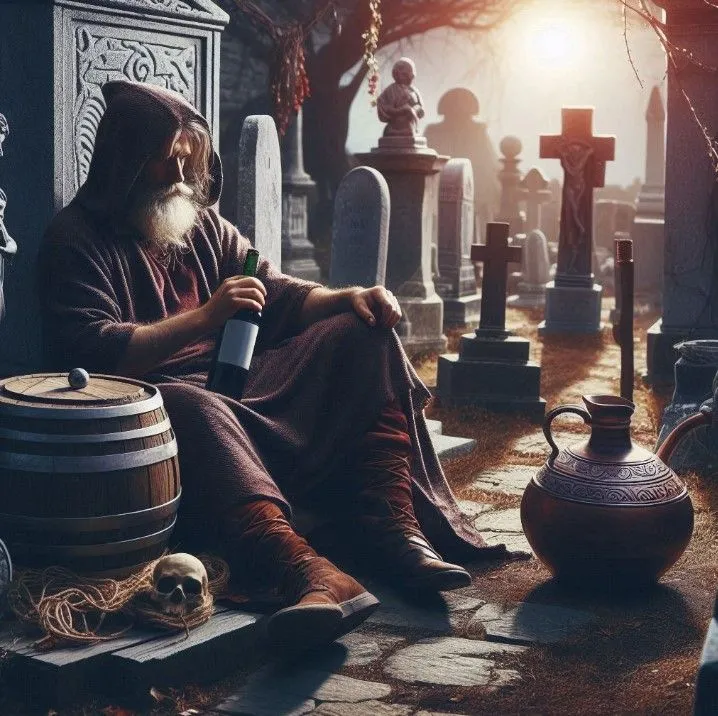 @designer.microsoft.com
@designer.microsoft.com
To help them move on peacefully, families would hire a sin-eater. The job? Simple—sit next to the coffin, eat a piece of bread, drink some wine or beer, and that’s it. The deceased’s sins were supposedly transferred to the sin-eater, allowing the soul to pass on without trouble.
Keeper of the Boiling Water
Nowadays, getting hot water is as easy as turning on a tap. But in the Middle Ages, there was an actual job for this! Wealthy households employed a "keeper of the boiling water," responsible for providing hot water for laundry, baths, washing, and other household needs.
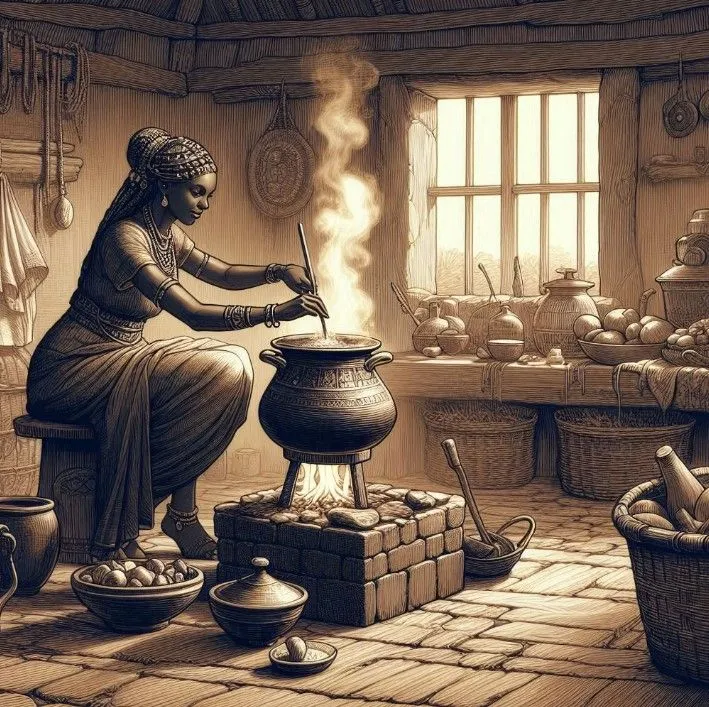 @designer.microsoft.com
@designer.microsoft.com
It might sound easy but hauling water, keeping fires going, and ensuring no one was left without a warm bath was exhausting work.
Plague Doctor
These famous doctors in eerie beaked masks appeared during plague epidemics. They wore long robes, gloves, and, of course, their iconic masks with long, bird-like noses filled with herbs and aromatic oils—people thought this would protect them from infection.
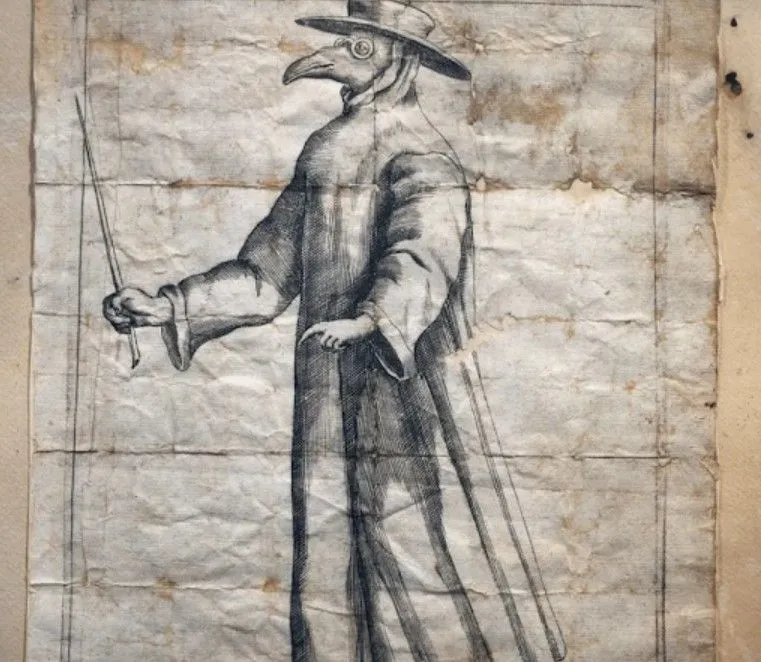 @drivepedia.com
@drivepedia.com
In reality, they weren’t much help. Plague doctors weren’t really healers; they were more like record-keepers, documenting the number of sick people and helping the dying pass without chaos.
Dog Chaser
If you think church security is a modern concept, here’s a blast from the past. In medieval times, stray dogs would often wander into churches, and to deal with them, special workers called Knockknobblers were hired—professional dog chasers.
 @designer.microsoft.com
@designer.microsoft.com
Their job was simple: see a dog, chase it out. They sometimes used whips or special tongs. On top of that, they woke up sleeping worshippers and quieted down noisy children.
Toshers
Now, this job was truly about survival and became particularly popular in London. Toshers were people who earned a living by venturing into the city’s sewers in search of lost coins, metal scraps, and other valuable items.
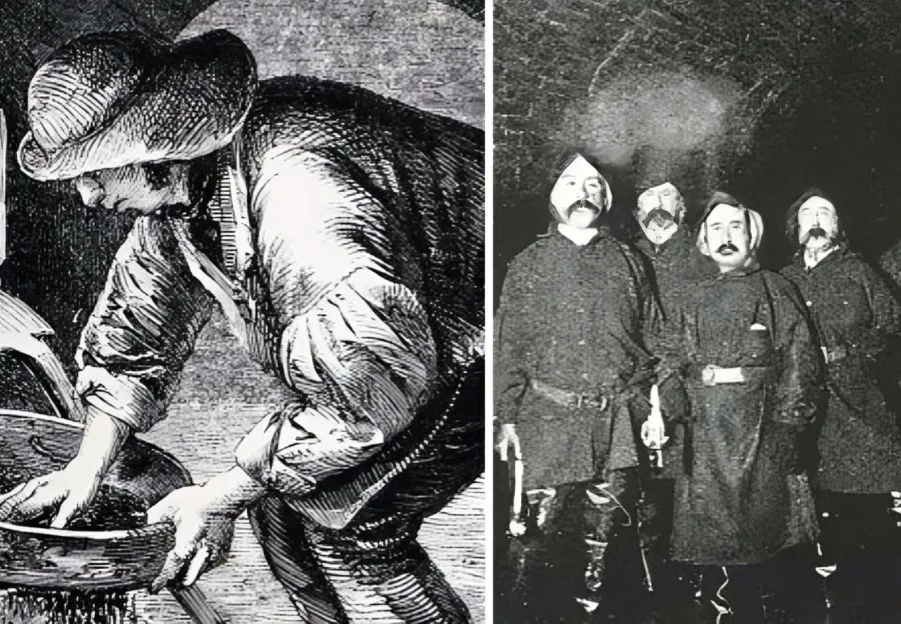 @batona.net
@batona.net
Sometimes, they got lucky and found something worthwhile. But the work was filthy, dangerous, and, to put it mildly, not very respectable. The working-class tolerated them to some extent but by 1840, the government outright banned sewer-scavenging by law.
Rat Catcher
In a world without sanitary services, cities had to deal with rats in their own way. That’s how professional rat catchers came to be—people who hunted rodents to prevent the spread of diseases.
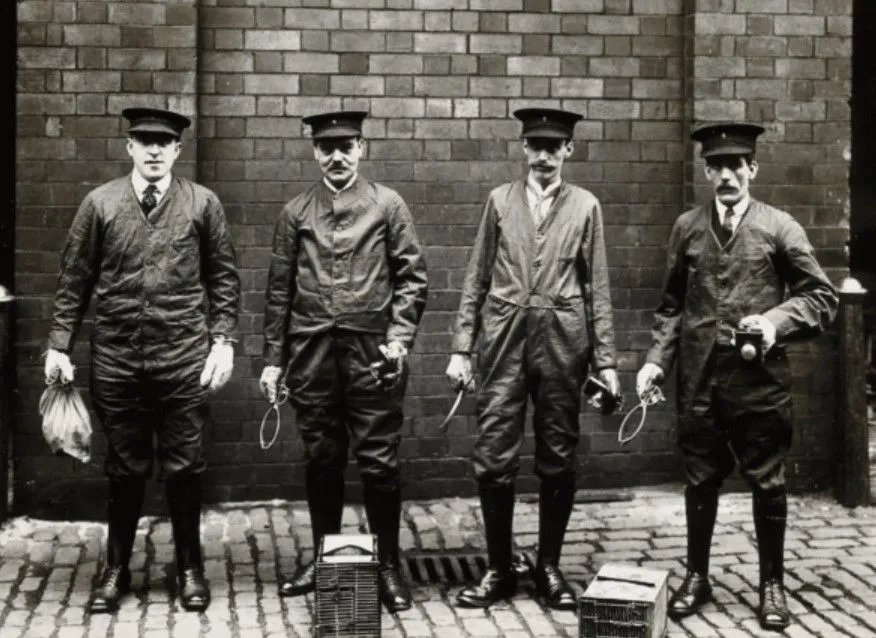 @batona.net
@batona.net
They could be found in medieval towns, especially during times of plague. Definitely not a job you’d wish on anyone!
Crossing Sweeper
If medieval cities had TikTok, videos of these guys would definitely go viral. Crossing sweepers worked on the streets, clearing the way for wealthy citizens so they wouldn’t get their shoes dirty.
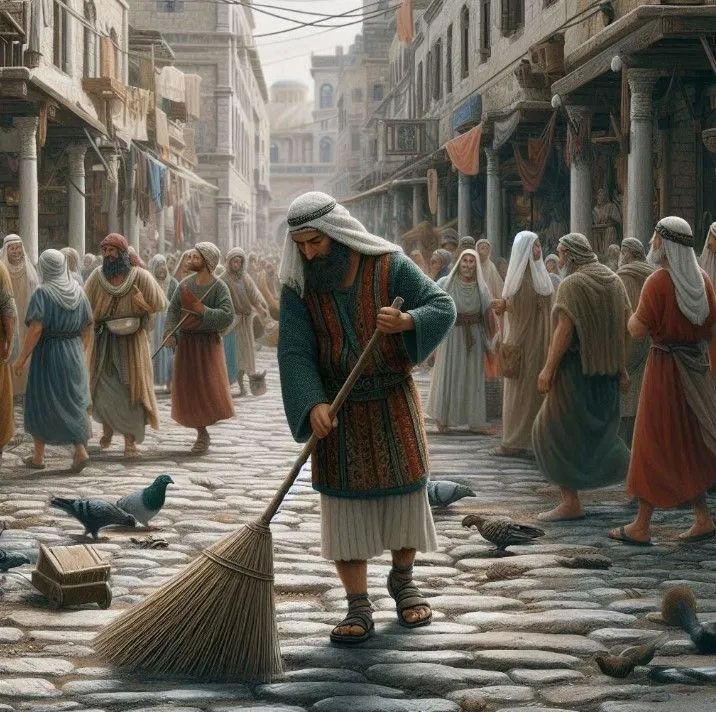 @designer.microsoft.com
@designer.microsoft.com
In an era when sanitation was poor and waste was thrown directly onto the streets, this job was a lifesaver! As a bonus, sweepers could earn tips for a job well done.
Bematist
Ancient Greek scholars could have set up a challenge: "Can you measure distances without any instruments?" Bematists (or, simply put, "step measurers") absolutely nailed it!
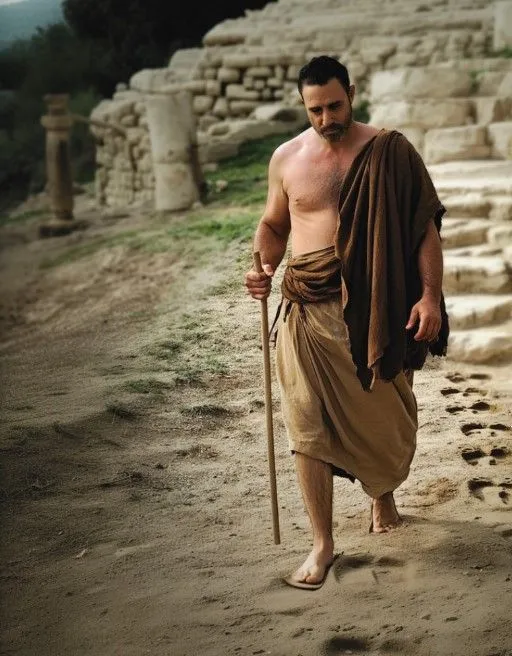 @The Historian's Den/facebook.com
@The Historian's Den/facebook.com
These people measured distances on foot, memorizing and recording the number of steps they took. They were crucial for cartography, road construction, and military campaigns. Some say that bematists played a key role in helping Alexander the Great accurately calculate distances during his conquests.
Sea Sponge Harvester
Today, bath sponges are just another product on a supermarket shelf. But back in the day, they were harvested by hand! Special divers would plunge to great depths without scuba gear to tear sponges from the ocean floor.
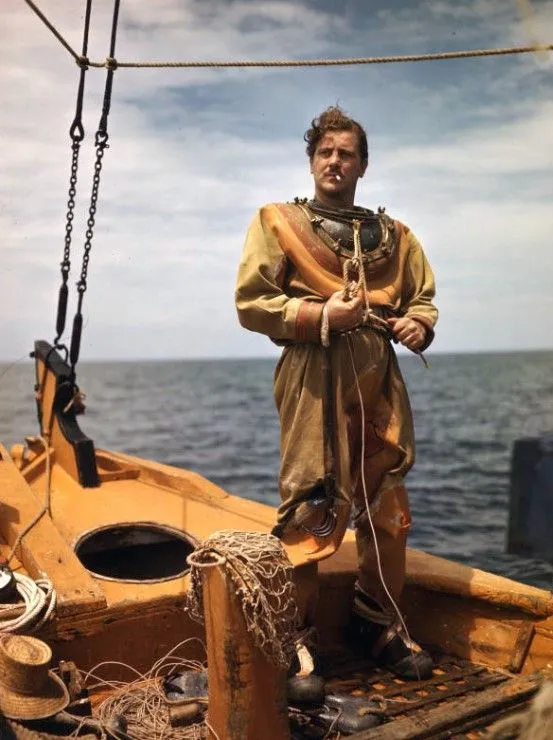 @Joseph Janney Steinmetz/Florida Memory Project
@Joseph Janney Steinmetz/Florida Memory Project
The job was tough and dangerous—you could encounter a shark, suffer from gas poisoning at depth, or simply fail to make it back to the surface in time. Despite the risks, this business thrived, especially in the Mediterranean.
Spitter
And yes, this profession actually existed! Their task was not an easy one: turnips were grown in gardens but their seeds were so tiny that they couldn’t simply be scattered across the soil. Turnips don’t tolerate overcrowding, so the seeds had to be placed with precision and accuracy to prevent clumping.
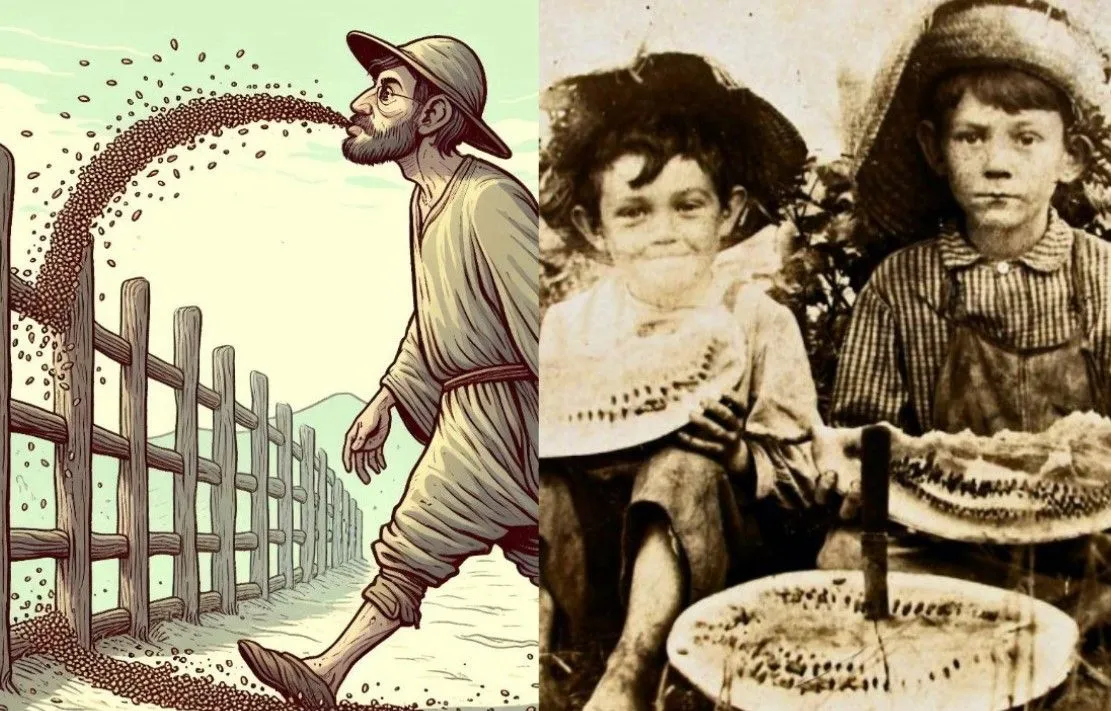 @shorpy.com
@shorpy.com
This is where spitters came in. Specially trained individuals with remarkable aim and dexterity would spit the seeds directly into the soil, as their small size made traditional sowing methods ineffective.
Armpit Plucker
Medieval ladies had a taste for bizarre beauty trends. In the 14th–15th centuries, the ideal look involved being completely hairless—not just on the face but also… under the arms.
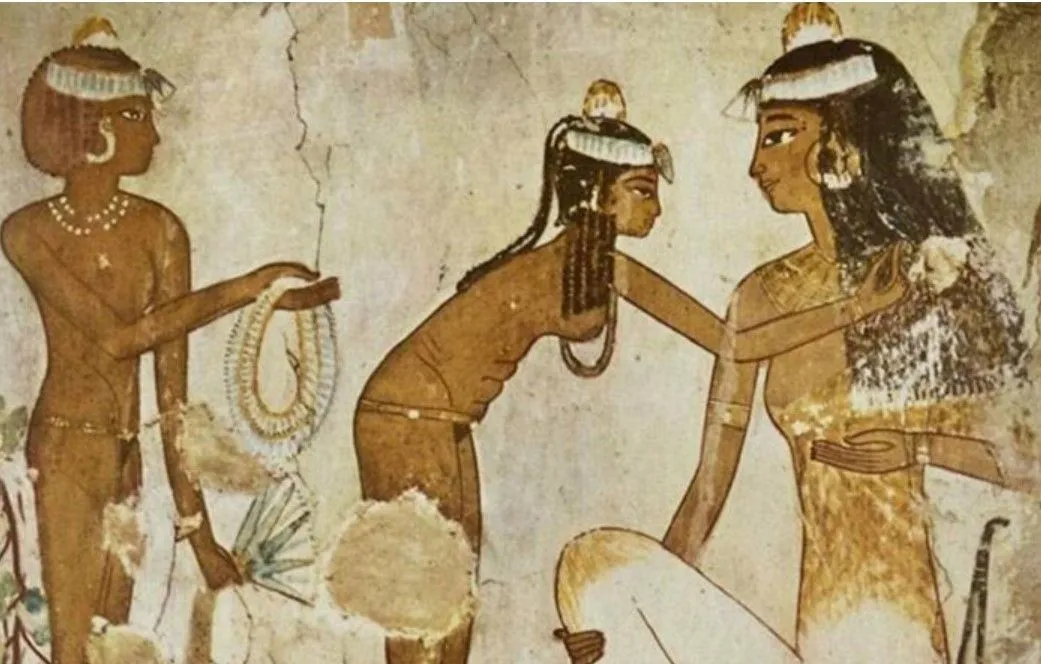 @fishki.net
@fishki.net
But since razors and waxing hadn’t been invented yet, a new profession emerged: the "armpit plucker." These specialists manually removed underarm hair for noblewomen. Sounds like torture? Well, beauty is pain!
Wig Flea Catcher
When enormous wigs became fashionable in the 18th century, a problem arose—they became breeding grounds for fleas. And so, a new profession was born!
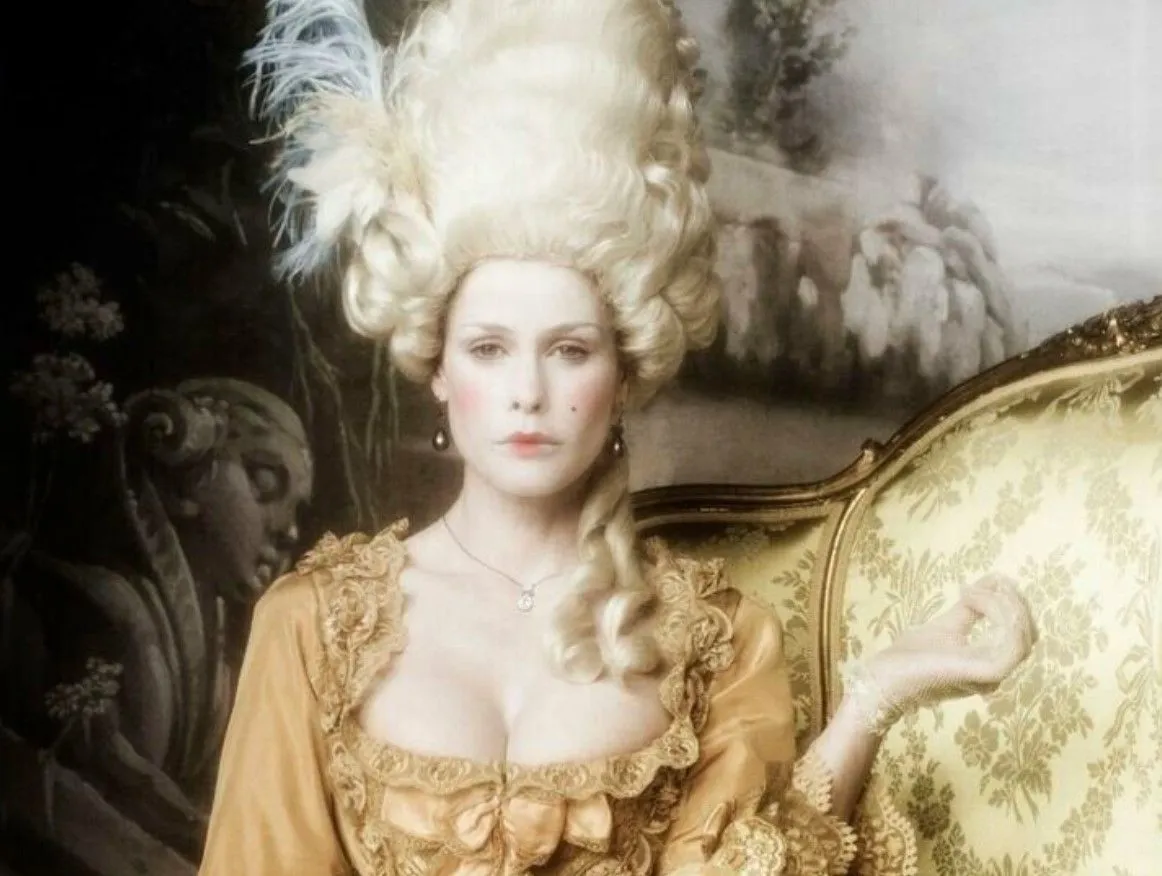 @fishki.net
@fishki.net
Wig flea catchers carefully combed through wigs, using special miniature traps to catch the insects. Imagine your wig itching like crazy, and a specialist shows up with tiny tweezers to remove the fleas—while getting paid for it!
Silent Film Pianist
Before the era of sound films, every movie screening was accompanied by live music. The music was performed by special musicians known as "tappers."
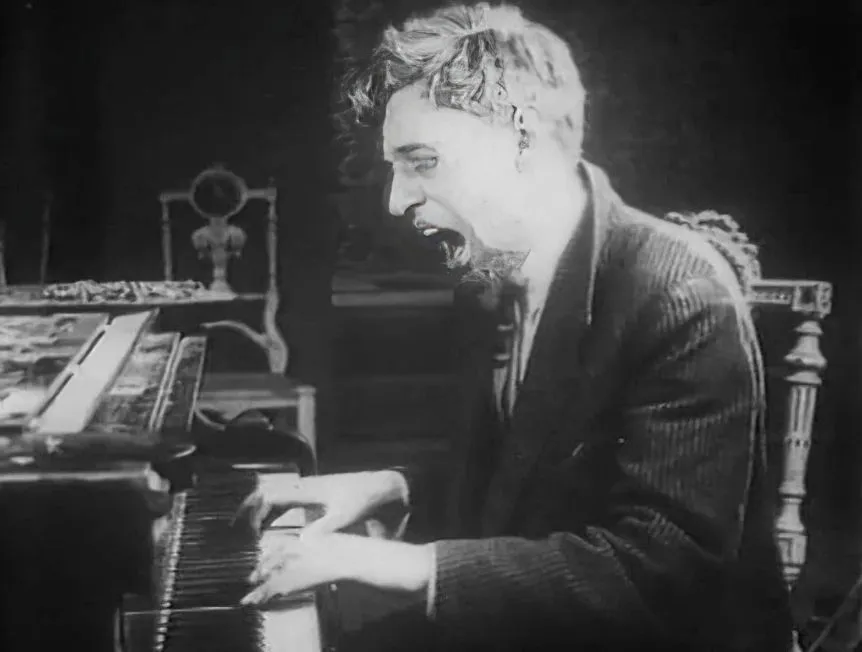 @mixnews.lv
@mixnews.lv
They sat at the piano and played melodies that matched the action on screen: tragedy—sad notes, chase scenes—fast-paced rhythms, romance—gentle chords. The job required not only musical talent but also lightning-fast reflexes, as silent films had no pauses!
Rag-and-Bone Man
Ever wondered who the first recycling companies were? Meet the rag-and-bone men! These guys collected unwanted items, clothing, metal, glass—basically anything that could be resold or repurposed.
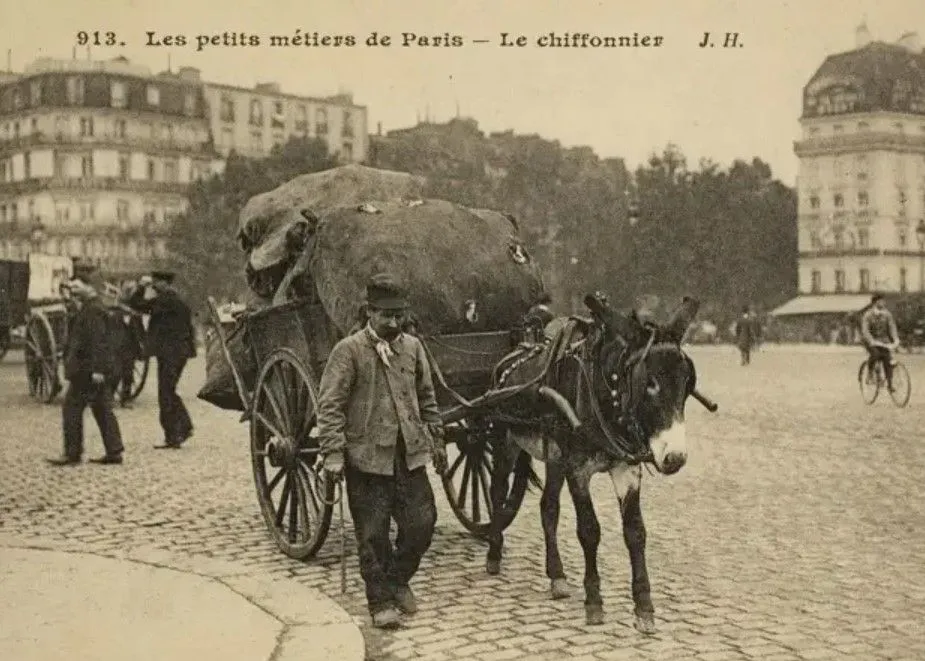 @mixnews.lv
@mixnews.lv
They roamed the streets with carts, shouting: "Rags! Scrap metal! Bottles!" (or whatever the medieval equivalent was). Without them, many valuable resources would have simply gone to waste.
Living Mannequin
Today, we see plastic mannequins in stores but once upon a time, real people played this role! In the 19th and 20th centuries, luxury fashion houses had special employees whose job was to walk around the showroom and showcase clothing to potential buyers.
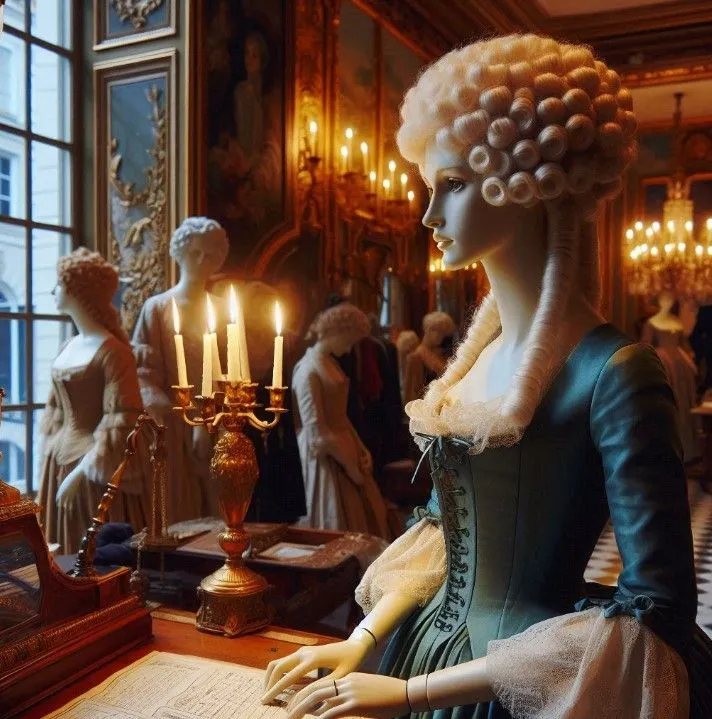
@designer.microsoft.com
It might seem like a dream job but in reality, it was much harder. Living mannequins were not allowed to smile or talk to customers, they worked 10-12 hours a day, and the clothes they modeled were often uncomfortable, itchy, or even heavy due to corsets.
Dead Detector
If you think panic over a zombie apocalypse is a 21st-century problem, you’ve clearly never lived in the 19th! Back then, people had an extreme fear of being buried alive. And it wasn’t an unfounded fear—medical knowledge at the time was far from perfect, and sometimes people were declared dead when they were actually in a coma or a deep faint.
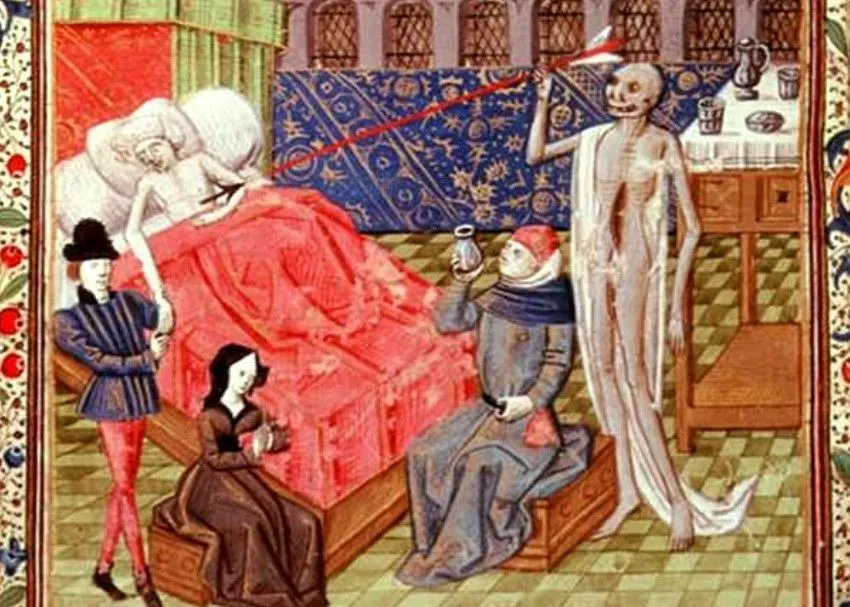 @listverse.com
@listverse.com
To prevent the nightmare of waking up in a coffin, families would hire a special person—the "dead detector." Their job was to ensure that the deceased showed no signs of life. The methods were harsh: they would stick a needle under the fingernail, tickle the feet, splash cold water on the face, or even pierce the skin to check for any reaction.
Fake Witness
Today, we rely on evidence, video recordings, and fingerprints in court. But in the past, things were much simpler—if you had a couple of "reliable witnesses," you could easily win a case. This gave rise to the profession of the fake witness—someone who, for a price, would swear to any version of events you needed.
 @listverse.com
@listverse.com
Want to prove that someone owes you money? No problem, here’s a respectable person who "personally saw" the transaction. Accusing your neighbor of theft? Perfect, here’s a witness who "saw" him running away with a sack of gold. In darker cases, such witnesses could even help send innocent people to prison…
Organ Extractor
The ancient Egyptians took the afterlife very seriously, and one of the creepiest jobs in Ancient Egypt was that of the organ extractor. These individuals were responsible for mummification but their task wasn’t just wrapping bodies in linen—they literally had to remove the deceased’s internal organs.
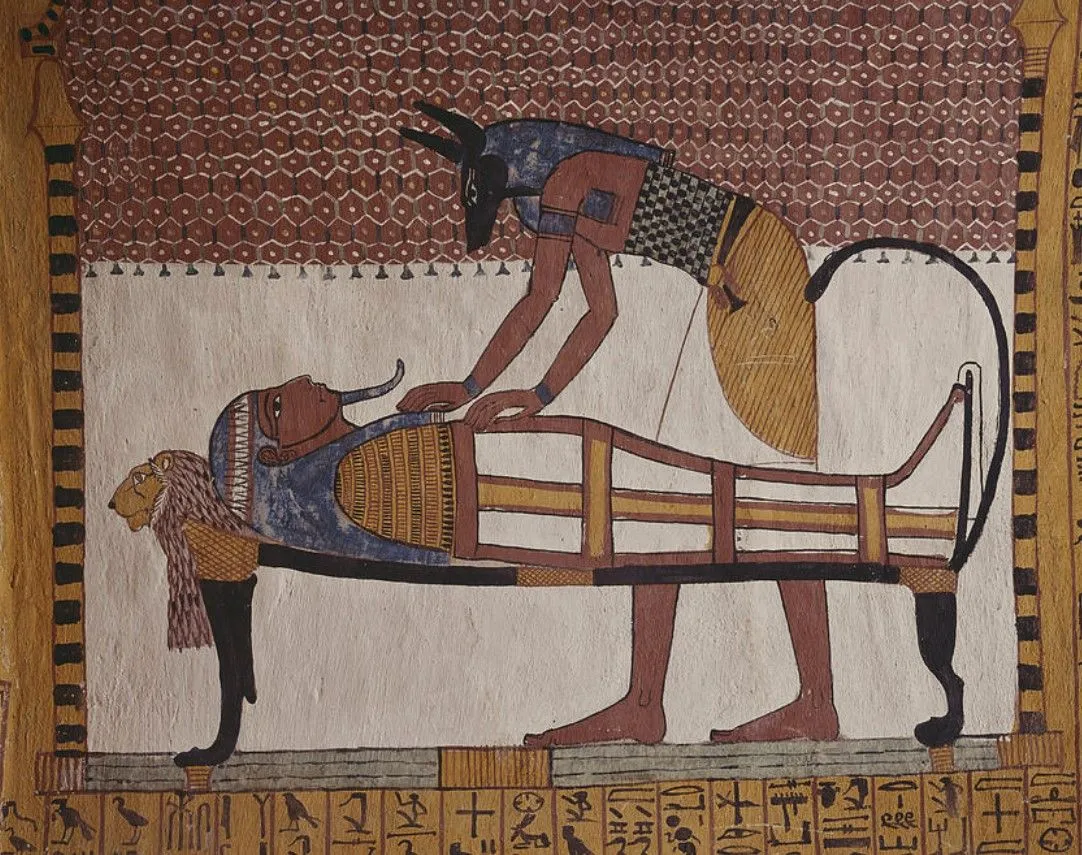 @pixels.com
@pixels.com
The process was intense: since organs decayed quickly, they were the first to be removed. This job was considered highly important but also… dishonorable. Egyptians believed that contact with the dead brought "impurity," so many people avoided these specialists.
Executioner-Psychologist
We all know what an executioner is but in medieval Europe, there was a unique version of this profession—the executioner-psychologist. This person not only carried out executions but also "prepared" the condemned for their death.
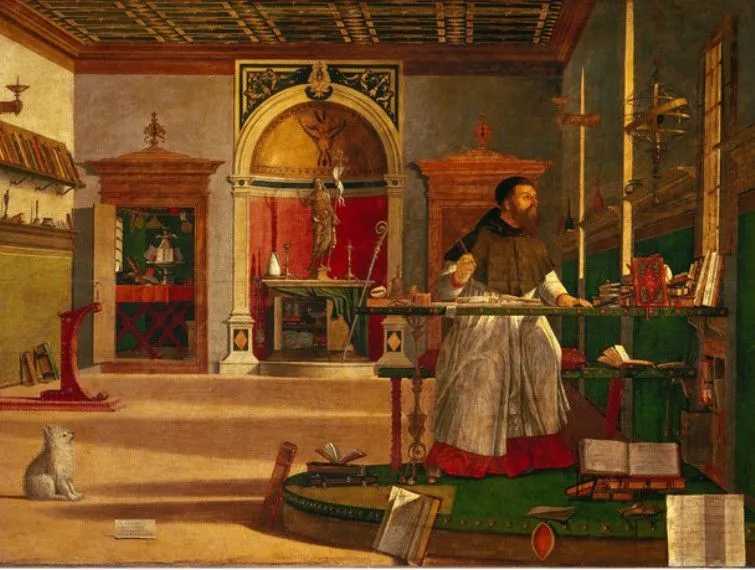 @ILLUSTRATION: Cameraphoto Arte, Venice/Art Resource, NY
@ILLUSTRATION: Cameraphoto Arte, Venice/Art Resource, NY
His task was to convince the prisoner that it was all for the sake of justice, help them come to terms with their fate, and even offer them a final confession. Many people feared not death itself but the pain it could bring, so executioners would sometimes "calm" them by promising a quick and painless end.
Wind Seller
Sounds like a scam but once upon a time, people really bought… the wind! In the Middle Ages, sailors believed that favorable winds could be "captured" in knots on a rope and released when needed.

@designer.microsoft.com
Wind sellers were clever tricksters: they convinced sailors that their magical knots could summon the wind, even in dead calm conditions. The rope had three knots—untying one would bring a light breeze, two would call a strong wind, and all three would unleash a storm! As you might guess, some of these sellers were nothing more than con artists...
Royal Double
Especially during the reigns of European and Eastern monarchs, an unusual profession existed—the royal double. This was a person who closely resembled the king or emperor and was used for staged meetings or events when the ruler wanted to avoid risk or was occupied with more important matters.
 @stablediffusionweb.com
@stablediffusionweb.com
Doubles often became the subject of ridicule or even threats, as their lives depended on maintaining their appearance and ensuring the monarch’s safety.
Scarecrow-Man
In medieval times, there was a profession dedicated to spreading fear. These individuals were hired to terrify the public during executions. They would wave weapons, shout, play eerie music, or perform frightening rituals to enhance the atmosphere of fear and punishment.
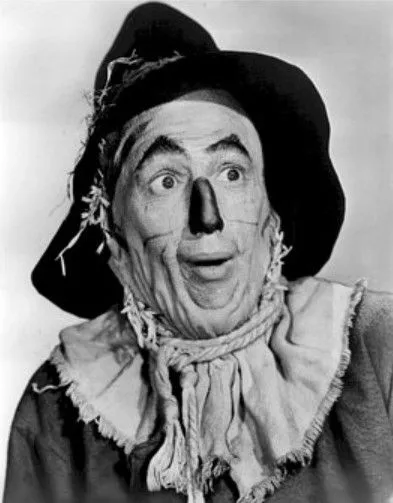 @hhhistory.com
@hhhistory.com
The goal was to ensure that the audience was sufficiently horrified, making the execution a stronger display of power.
Chair Controller
In the Middle Ages, there was a profession called the "chair controller." Sounds unusual, right? The person in this role was responsible for ensuring the proper arrangement of chairs at ceremonies, royal courts, or grand banquets.

@designer.microsoft.com
Their entire job was to correctly position chairs for guests, oversee seating arrangements, and ensure the comfort of high-ranking attendees, especially the royal family. At first glance, it may seem trivial but chair controllers were important members of palace staff and often held a high status. Surprising, isn't it?